THE PRESIDENT OF THE REPUBLIC OF CROATIA, ZORAN MILANOVIĆ, RECEIVED THE CREDENTIALS OF SEVERAL NEWLY
APPOINTED AMBASSADORS TO CROATIA

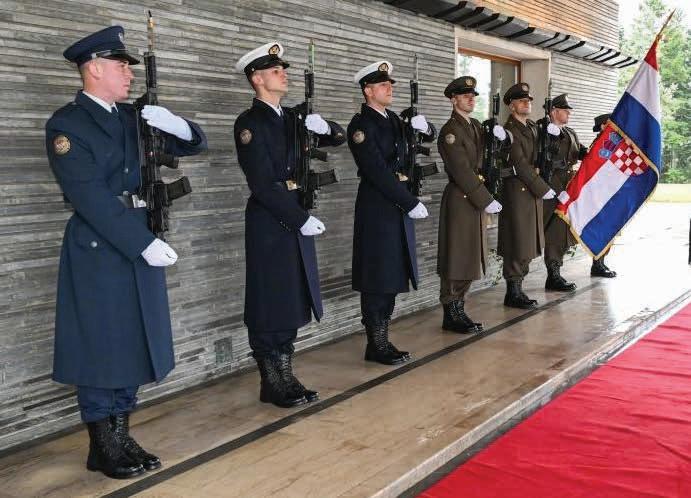

SECURE A POSITIVE CLIMATE FOR DEVELOPMENT OF ECONOMY AND STRENGTHENING CITIZENS’ STANDARD
‘PROTECT. STRENGTHEN. PREPARE.”
H.E WILLIAM DE BAETS
Ambassador of the Kingdom of Belgium to Croatia

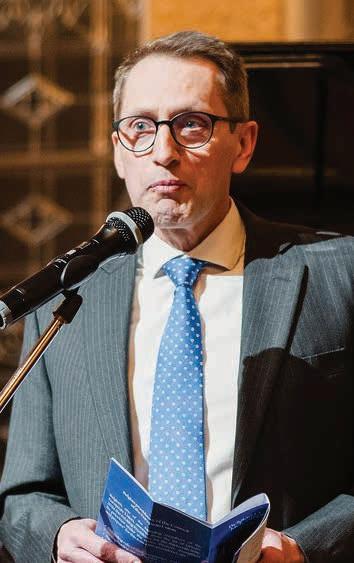
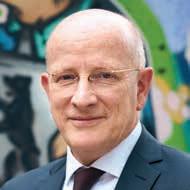

EXCELLENT RELATIONS BETWEEN FRANCE AND CROATIA
H.E. FABIEN FIESCHI Ambassador of France to Croatia

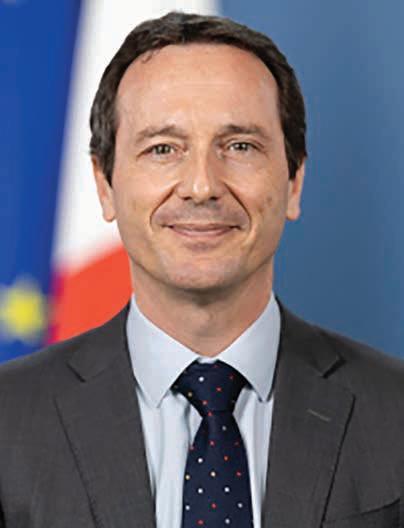
GERMANY AND CROATIA NURTURE CLOSE PARTNERSHIP RELATIONS FULL OF TRUST
H.E. CHRISTIAN HELLBACH
Ambassador of the Federal Republic of Germany in the Republic to Croatia

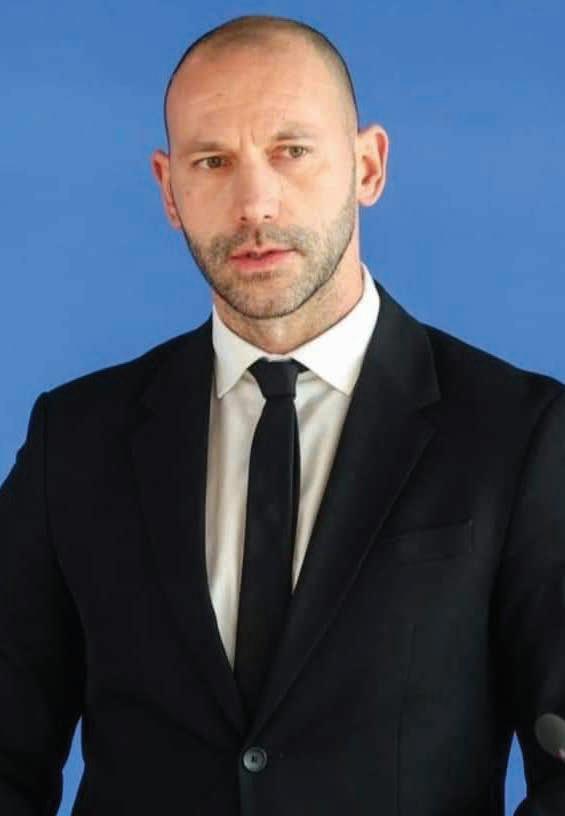

DAMIR HABIJAN Minister of Economy and Sustainable Development
LISINSKI – SYNONYMOUS WITH QUALITY AND TRADITION
NINA ČALOPEK

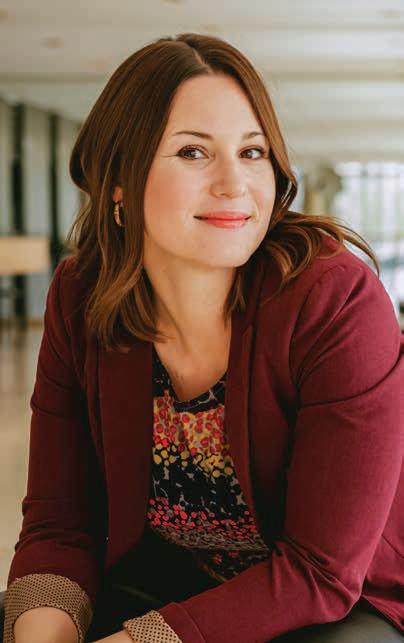
General Manager of Vatroslav Lisinski Concert Hall
AHK - THE LARGEST BILATERAL BUSINESS ASSOCIATION IN CROATIA
STEFANIE ZISKA Director of the German-Croatian Chamber of Industry and Commerce


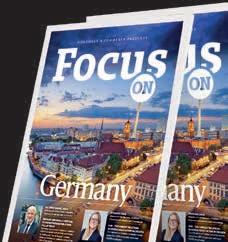
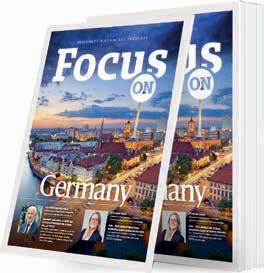
February/March - 2024 » ISSUE No. 50. » FREE COPY
www.diplomacyandcommerce.hr
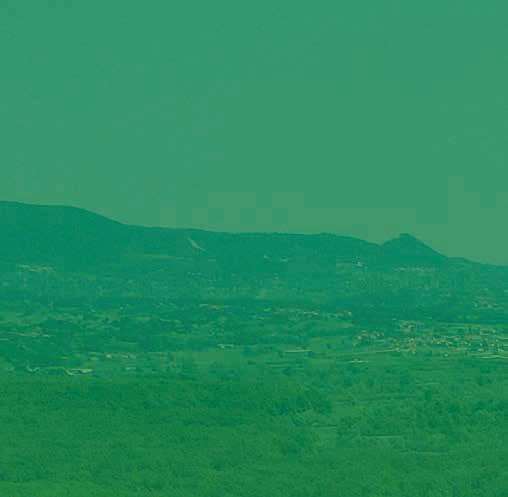



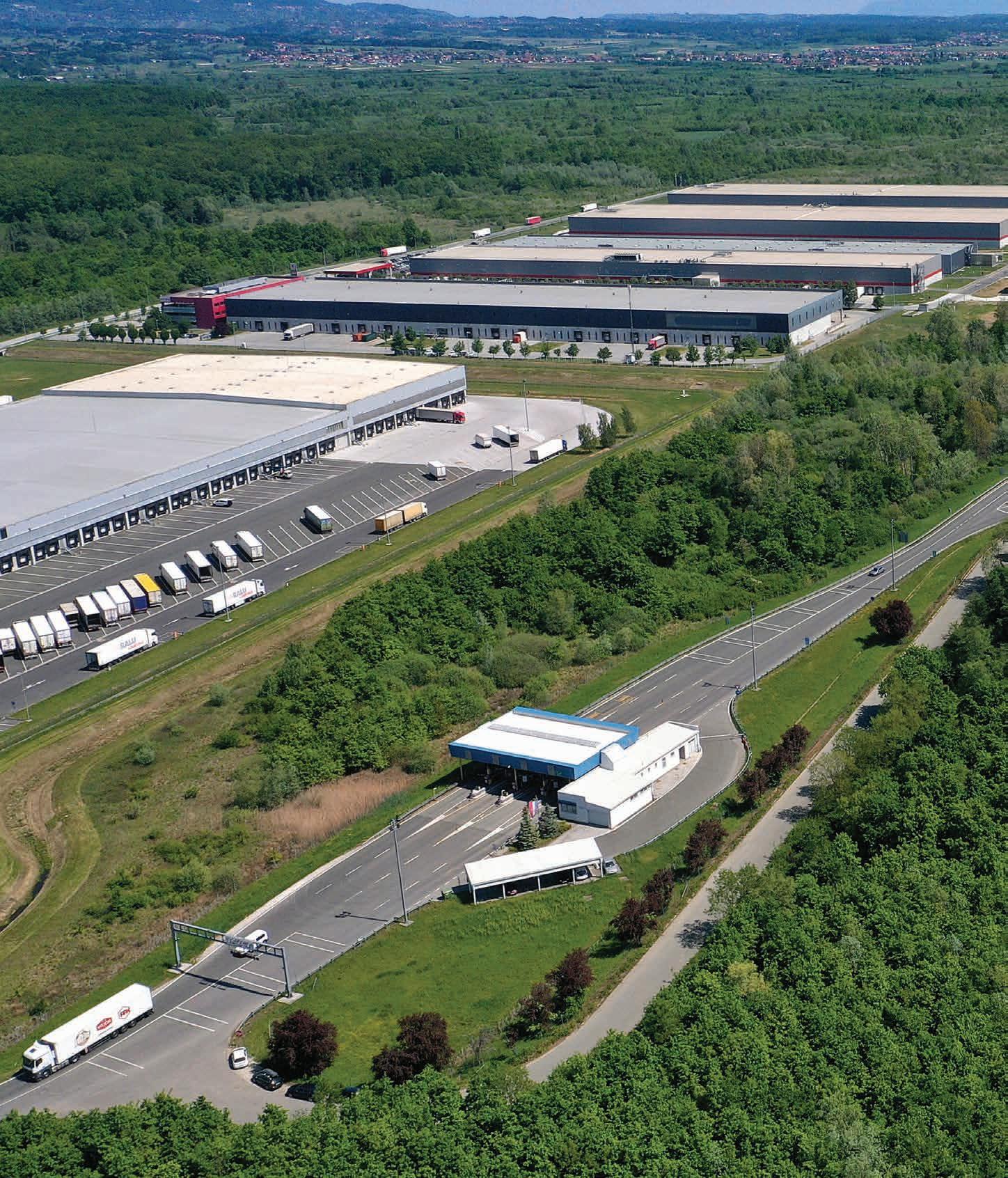

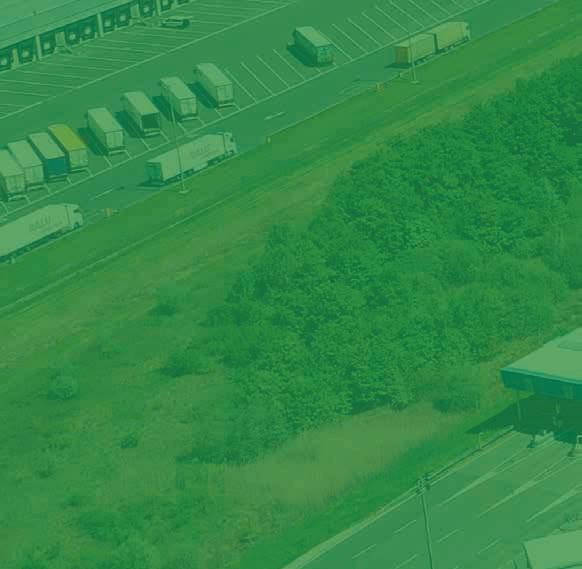


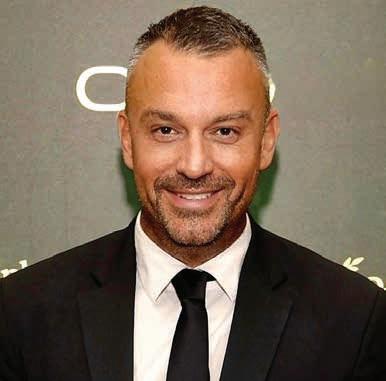
FOREWORD
BOBAN SPASOJEVIĆ, Magazine Director Croatia and Editor in Chief boban@diplomacy andcommerce.hr
ROBERT ČOBAN Director
VLADIMIR DUDAŠ
C e n t r o b i r o Art Director
GORANKA MILOŠEVIĆ Translation
Predstavnik za RH

Aspekt obrt za savjetovanje i usluge
CONTENTS
6
SECURE A POSITIVE CLIMATE FOR DEVELOPMENT OF ECONOMY AND STRENGTHENING CITIZENS STANDARD
DAMIR HABIJAN
Minister of Economy and Sustainable Development
10
“PROTECT. STRENGTHEN. PREPARE”
H.E WILLIAM DE BAETS
Ambassador of the Kingdom of Belgium to Croatia
13
EXCELLENT RELATIONS BETWEEN FRANCE AND CROATIA
H.E. FABIEN FIESCHI
Ambassador of France to Croatia
16
UNICEF - ALWAYS AT THE SERVICE OF CHILDREN REGINA M. CASTILLO
Leading the UNICEF Office to Croatia

Dear readers,
The Diplomacy&Commerce team is pleased to present to you the new edition of the magazine, one that we have worked hard on. This is the seventh year of the magazine in Croatia, and in addition to the quality you are used to and rich content, the magazine will publish 4 issues in 2024. Our plan is to prepare two issues before the summer break and two after the summer. This makes our content even richer and more concise.
There are challenges ahead of us, both in Croatia, and throughout Europe and the world. In the super election year where elections will be held in more than 70 countries with around 4.2 billion inhabitants. Wars and heightened tensions between global powers, along with everything else, will be the subject of our articles. What we insist on from the beginning is the economy and business equally from all angles and through all forms of business. We believe that it is an integral part of life just like politics, and we remain the only ones that combine the topics of entrepreneurship and business with diplomacy and politics, all in one place.
Enjoy the content that we have prepared for you

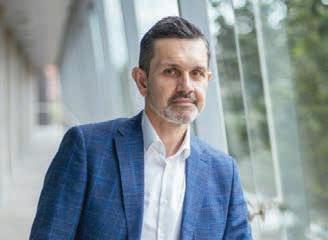
18
AN OPPORTUNITY FOR INDUSTRY GROWTH WITH A GREEN AND DIGITAL ECONOMY TOMISLAV RADOŠ, ASSISTANT PROFESSOR
Vice President of HGK for Industry and Sustainable Development
26
GERMANY AND CROATIA NURTURE CLOSE PARTNERSHIP RELATIONS FULL OF TRUST
H.E. CHRISTIAN HELLBACH
Ambassador of the Federal Republic of Germany in the Republic to Croatia
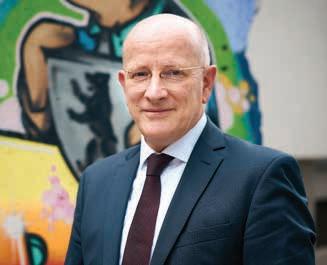
30
AHK - THE LARGEST BILATERAL BUSINESS ASSOCIATION IN CROATIA
STEFANIE ZISKA
director of the German-Croatian Chamber of Industry and Commerce
34
125 YEARS OF MIELE STILL STANDS FOR QUALITY AND SUSTAINABILITY
MR. JOSEF ASBÖCK
Commercial Director Miele Croatia, Slovenia, Bosnia & Herzegovina
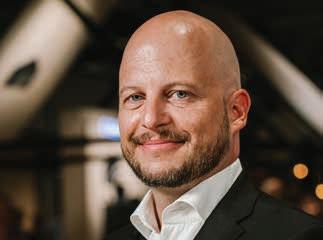
40
THE BEST LOCATIONS FOR GREENFIELD INVESTMENTS
Entrepreneurial Center of Zagreb County
42
LISINSKI – SYNONYMOUS WITH QUALITY AND TRADITION NINA ČALOPEK
General Manager of Vatroslav Lisinski Concert Hall
3
BOBAN SPASOJEVIĆ Director and Editor-in-Chief
EUROPIAN UNION

New targets for 2040: recommendations for achieving climate neutrality by 2050.
The Commission recommends new targets for the European Union to meet in order to become climate neutral by 2050. It recommends reducing net greenhouse gas emissions by 90% by 2040 compared to 1990 levels, in line with the latest scientific advice and the EU‘s commitments under of the Paris Agreement.
To achieve the 90% reduction target by 2040, the following measures will be required:
full implementation of existing EU regulations to reduce emissions by at least 55% by 2030. decarbonisation of industry by relying on existing strengths such as wind power, hydropower and electrolyzers. On this occasion, the Commission proposed new measures for the management of carbon emissions in industry in the EU aimed at investing in technologies that can capture and store carbon and reuse it
increasing domestic production in growing sectors such as batteries, electric vehicles, heat pumps, solar cells and others promoting justice, solidarity and social policy as key aspects of the transition and providing assistance to vulnerable citizens, regions, businesses and workers with tools such as the So-
cial Fund for Climate Policy and the Just Transition Fund establishing an open dialogue with all interested parties, including farmers, companies, social partners and citizens.
It is estimated that in the last five years, climate change has caused economic damage worth 170 billion euros. The costs and impacts of climate change on people are getting bigger and more noticeable. We must act now to strengthen Europe‘s resilience to future crises and become less dependent on fossil fuel imports. The climate goal for 2040 will also help European industry, investors, citizens and governments to make decisions by the end of this decade that will enable the EU to achieve the goal of climate neutrality by 2050.
This goal will now be discussed with the European Parliament and the member states. The next Commission will present legislative proposals based on this. The European Climate Law incorporates into the legislation the goal, established in the European Green Plan, that the European economy and society become climate neutral by 2050. This law sets a transitional goal of reducing net greenhouse gas emissions by 2030 by at least 55% compared to 1990 levels.

New rules to protect your rights and activity online in the EU
The EU’s online environment is becoming a safer, fairer and more transparent place on 17 February, when its landmark rulebook, the Digital Services Act, fully comes into force. This will see new responsibilities imposed on online platforms who have users in the EU, with the aim of better protecting those users and their rights. The rules, which had already applied to a number of very large platforms and very large search engines since 2023, will start applying to all platforms and hosting services. This means they will all need to implement a number of different measures to empower users. This includes: countering illegal content, goods and services by providing users with the means to flag such illegal activity protecting minors, including a complete ban of targeting minors with ads based on profiling or on their personal data empowering users with information about advertisements they see, such as why the ads are being shown to them and on who paid for the advertisement banning advertisements that target users based on sensitive data, such as political or religious beliefs, sexual preferences, etc. make it easier to submit complaints and contact them
To help the Commission monitor and enforce obligations in this new law, responsible authorities will help ensure that platforms play by the rules in every EU country. Together with the Commission, they will form an advisory body to ensure that the rules are applied consistently, and that users across the EU enjoy the same rights.
4 www.diplomacyandcommerce.hr FORECAST




















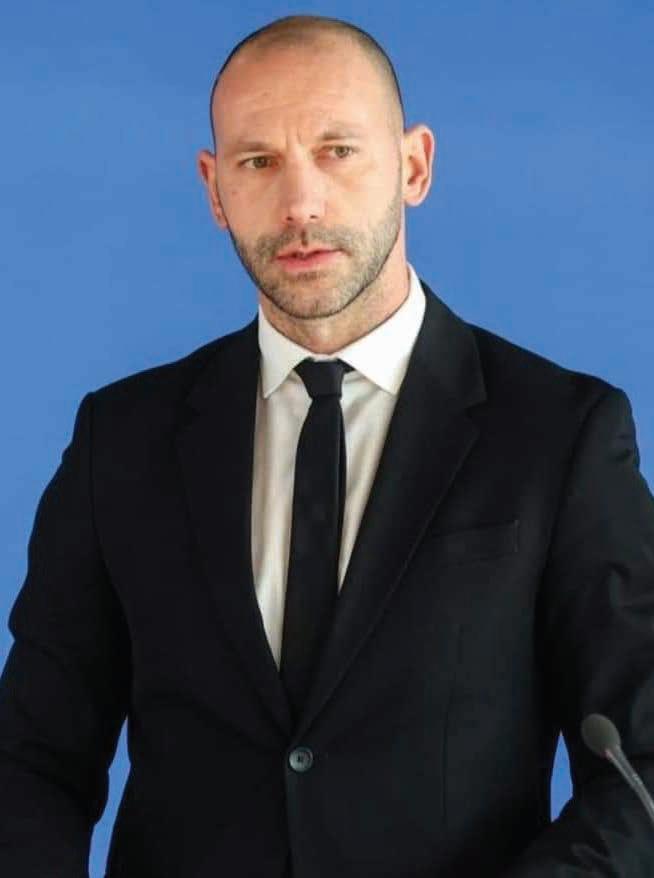
Secure a positive climate for development of economy and strengthening citizens’ standard
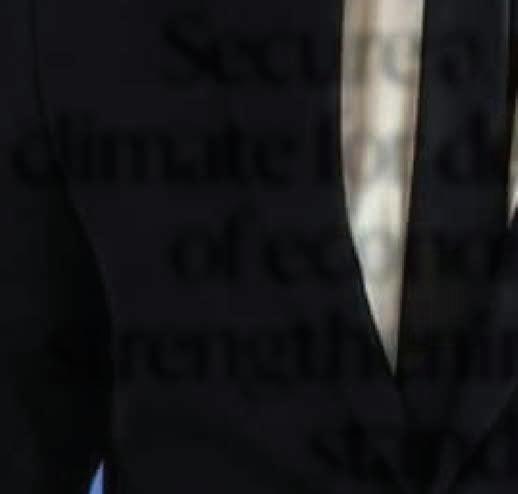
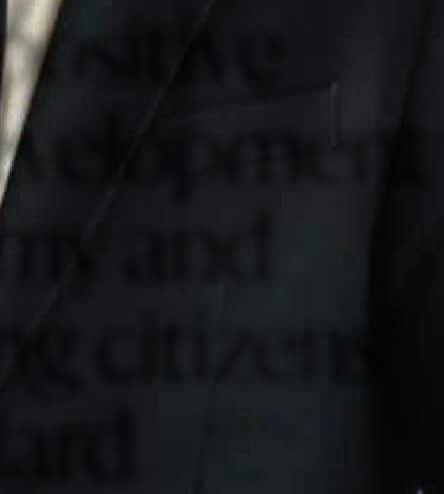
There are a number of extremely high-quality projects that will make this possible, and we must not neglect the continuation of their implementation.
6 www.diplomacyandcommerce.hr INTERVIEW
DAMIR HABIJAN Minister of Economy and Sustainable Development
By assuming the position of Minister of Economy and Sustainable Development, I accepted the job of managing a huge department with many segments and mini-departments, and I used the last month to familiarize myself in detail with all the important completed projects, as well as ongoing or planned projects, Minister of Economy and Sustainable Development Damir Habijan tells Diplomacy&Commerce. The Minister speaks in detail also about the most important projects from his department, and about the implementation of all the plans of the Government of the Republic of Croatia.
You recently came to the head of a Ministry on which the very quality of daily life of Croatian citizens depends in many ways. What would you single out as the priorities in your activities in the coming period and what do you see as the biggest challenges in their implementation?
I would particularly like to single out the Action Plan for reduction of non-tax and parafiscal charges, which was adopted by the Government of the Republic of Croatia at the end of December last year. This is an extremely important Action Plan for businessmen in terms of reducing non-tax and parafiscal charges in the amount of 132.7 million euros. Amendments to regulations and the legal framework will achieve a reduction in fees for the use of public benefit forest functions, a reduction in the court fee when submitting a proposal for entry into the land register electronically, a successive reduction in the fee for managing mandatory pension funds, a reduction in the fee for water use, and a reduction in the fee for water protection and numerous other reductions.
I am convinced that this is good news for businessmen and citizens equally. The Action Plan was reached in agreement with several departments, and I thank them for their cooperation. Also, I should mention the action plan concerning administrative relief of at least 265 million euros, which is aimed at several key areas: taxation, tourism, agriculture, transport, as well as services within the Ministry of Economy and Sustainable Development. These activities are a clear indication of the consistent policies
of the Government of the Republic of Croatia when it comes to creating and maintaining a favourable entrepreneurial climate. Furthermore, there is a large number of activities related to the water utility area, and a special focus has been placed on energy due to geopolitical events over the last two years. Active efforts are being made to strengthen energy security, which includes renewable energy sources, exploitation of geothermal potentials, decarbonisation and general promotion of renewable energy sources. Some of the projects are
was the tax burden. The conversation was also about pricing policy and challenges in the energy sector, the wood industry, the labour and capital markets, and other current topics. Do we have any concrete decisions regarding the aforementioned taxes, the labour market..?
Tax Administration of the Ministry of Finance has published the Tax Competitiveness Portal of the Republic of Croatia in comparison with other European countries, from which it is evident that the la-
WE ENSURE SUPPORT FOR OUR CITIZENS IN THE FORM OF SUBSIDIES WHICH, AS SHORTTERM MEASURES, WILL REDUCE THE PRESSURE ON INDIVIDUALS, UNTIL MEDIUM-TERM SOLUTIONS ARE BUILT AND UNTIL THE RETURN OF MARKET PRINCIPLES TO THE ENERGY SECTOR AT THE EU LEVEL IS ENABLED.
already in the implementation phase, some are still in pilot stage. This is only part of the projects that the Ministry is actively implementing. There are series of challenges that await us, and everyone is well aware of how and to what extent the aggression against Ukraine has affected global economies. We follow geopolitical events, we adapt to them, all with the aim of strengthening the competitiveness of our economy and raising the citizens’ standards.
How much can the parliamentary elections that are expected to take place this year slow down or maybe even speed up the implementation of the set plans?
I am not thinking about the term of office, nor the date of parliamentary elections. I consider it essential to continue with continuous work, regardless of the date of parliamentary elections. The obligation of the state, including the Ministry, is to ensure a positive climate for the development of the economy, while caring for citizens and strengthening their standards. There are a number of extremely high-quality projects that will make this possible, and we must not neglect the continuation of their implementation.
You recently met with representatives of several professional associations, one of which is HUP. One of the topics
bour tax burden in Croatia is one of the lowest in the European Union, and Croatia is a desirable destination for business establishment. According to the share of tax revenues in GDP, Croatia was at around 36 percent in 2021, while the EU average was around 41 percent. In addition to the fact that this share is currently lower in the Republic of Croatia, the share continues to decrease, in contrast to individual EU countries. Regarding the taxation of investment income, it is important to point out that the lower tax rate (10 percent) is paid by 91 percent of taxpayers.
The aim of the tax policy in the Republic of Croatia will be to shift the tax burden from labour to property and to reduce the tax burden on higher salaries in order to attract as many high-paid jobs as possible.
These days, the demands of craftsmen, especially those who pay flat-rate taxes, are getting louder and more frequent, considering the introduction of the euro and inflation, to raise the allowed limit of annual income from the current limit which is slightly below 40,000 euros to 50,000 euros or even 80 000 euros like in some EU countries. Is there such a possibility in Croatia and what can the Flat-rate Taxpayers expect, so that a large number of them would not enter the VAT system, and therefore increase
the price of their services and problems in business operations?
The threshold for entering the VAT system in Croatia is higher than the EU average, for example, in Austria it is EUR 30,000.00, in Belgium and Bulgaria EUR 25,000.00, in the Czech Republic (as well as in Croatia) EUR 39,000, in Germany EUR 17,500.00. euros, in Estonia 40,000.00 euros, in Greece 10,000.00 euros, in Spain and the Netherlands it does not exist, it is 65,000.00 euros in Italy, 45,000.00 euros in Lithuania, 40,000.00 euros in Latvia, 30,000.00 EUR in Luxembourg, EUR 35,000.00 in Malta, EUR 47,000.00 in Poland and Romania, EUR 29,000.00 in Sweden, EUR 50,000.00 in Slovenia and Slovakia, therefore Croatia is in the middle.
If you had to single out one thing that you have done since you came to the head of the Ministry, that are you most proud of - what would it be?
I have been in the position of Minister of Economy and Sustainable Development for a very short time, but if I had to single out some of the successes of the Ministry, I would certainly mention the continuous implementation of the policy of the Government of the Republic of Croatia aimed at relieving entrepreneurship through the reduction of non-tax and parafiscal charges and through the optimization and digitization of services provided by the state to entrepreneurs, which I already mentioned at the very beginning.
We marked the completion of the first phase of construction of the new, second Croatian underground gas storage facility in Grubišno Polje and put into operation the newly built gas station of the future PSP Grubišno Polje. This visionary move by the Government of the Republic of Croatia, which financed the project together with the European Commission, ensured the stability of supply in the Republic of Croatia over the last two years, when it comes to natural gas. In combination with the measures adopted by the Government regarding limiting energy prices, all postulates of the European Union were ensured, and energy products were delivered to citizens and the economy of the Republic of Croatia in sufficient quantities and at affordable prices.
I would also like to point out the adoption of the Decision of the Croatian Government on increasing the security of gas supply by build-
7 INTERVIEW
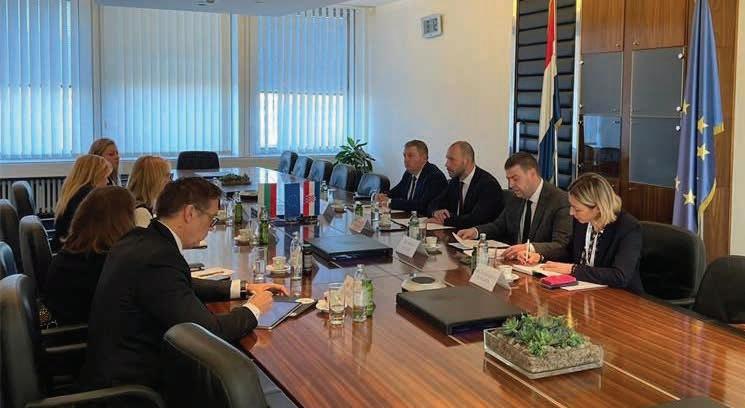
ing the Bosiljevo-Sisak-Kozarac gas pipeline and the Lučko-Zabok gas pipeline of a total value of 400 million euros, which will ensure a safe and stable gas supply,
When it comes to nature protection, I would like to highlight intensive activities aimed at the protection of Ivanščica, Strahinjčica, Maceljska Gora and Ravna Gora in the nature park category. During January, working meetings were held with the Varaždin and KrapinaZagorje counties, and an agreement was reached on the general coverage of the future park with an area of over 31,000. We are talking about an area that is a characteristic mix of mountain forests, grasslands, vineyards, orchards and gardens that are home to numerous plant and animal species, and is also notable for its valuable geological and paleontological sites, the most famous of which is the unique Vindija cave. Let’s mention that springs of three rivers are located in the park: Sutla, Bednja and Lonja.
There is a whole number of projects and activities that were initiated before I assumed the position of Minister of Economy and Sustainable Development, and they need to be successfully concluded. They cover all areas of the Ministry’s competence and each of them brings a certain value to the economy, encouraging entrepreneurs, strengthening competitiveness, energy stability, combating climate change, and improving communal infrastructure.
I WOULD ALSO LIKE TO
POINT OUT THE ADOPTION OF THE DECISION OF THE CROATIAN GOVERNMENT ON INCREASING THE SECURITY OF GAS SUPPLY BY BUILDING THE BOSILJEVOSISAK-KOZARAC GAS PIPELINE AND THE LUČKOZABOK GAS PIPELINE
Energy, gas, gas storage, fuel prices - these are global topics, especially now in times of crises and wars. How do you see Croatia’s position in this context?
In recent years, the Republic of Croatia has been actively working on diversification of sources, security of supply, and decarbonization of the energy sector. The LNG terminal on the island of Krk started operating at the beginning of 2021, and already in 2022, due to the energy crisis caused by the aggression of the Russian Federation towards Ukraine, the Government of the Republic of Croatia made a decision to increase the capacity of the LNG terminal and the gas pipeline Zlobin - Bosiljevo. Furthermore, we included these projects, as well as projects intended to increase the gas pipeline on the BosiljevoSisak - Kozarac and Lučko - Zabok routes, in the REPowerEU chapter of our Recovery and Resilience Plan, which sent a clear signal to neighbouring countries that the Republic of Croatia is an important
factor in the security of gas supply from third countries. The planned capacity increase will be completed by the end of 2026, when the plan is to make the increased capacity available to Hungary and Slovenia, and through them to other EU members. Works on the new gas storage facility, which is primarily intended to ensure peak gas consumption within the Republic of Croatia, have also been opened, and this will increase and optimize our gas transportation system.
At the same time, we ensure support for our citizens in the form of subsidies which, as short-term measures, will reduce the pressure on individuals, until medium-term solutions are built and until the return of market principles to the energy sector at the EU level is enabled.
All of the above clearly shows that the Republic of Croatia is ready for these challenges and that it will continue to work on ensuring safe and affordable energy, making sure to continue to work on ensuring sufficient amounts of energy from various parts of the world.
In this issue of our magazine, we did an interview with the Ambassador of Belgium H.E. William De Baets, among others. You recently met with the Minister of Energy of the Kingdom of Belgium, Tinne Van der Straeten. The main topics of the meeting were related to energy transition, i.e. the production and transmission of green energy, and nuclear energy. What specifically can we learn and apply from the Belgians here in Croatia and are there any concrete agreements?
Croatia and Belgium support common EU policy. Energy transition is an important segment of the decarbonization policy, which must ensure that Europe becomes the first climate-neutral continent by 2050. In accordance with this, we in Croatia are trying to strengthen the production of energy from renewable sources, especially because the potential we have from wind and sun is great, and to that we need to add geothermal energy, as well as bio-economy. Considering our co-ownership in Krško Nuclear Power Plant, we also strongly support nuclear energy, especially research that should lead us to the commercial use of fusion.
All of the above clearly shows that the Republic of Croatia and Belgium have a lot of common points of interest and opportunities to strengthen cooperation.
8 www.diplomacyandcommerce.hr ZAGLAVLJE INTERVIEW
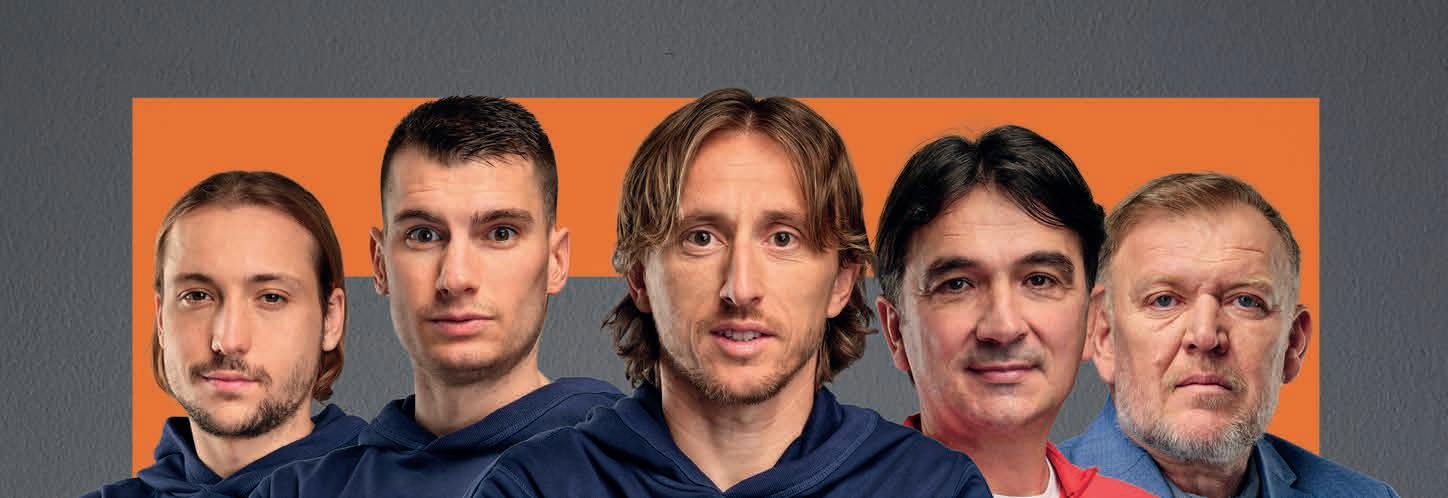
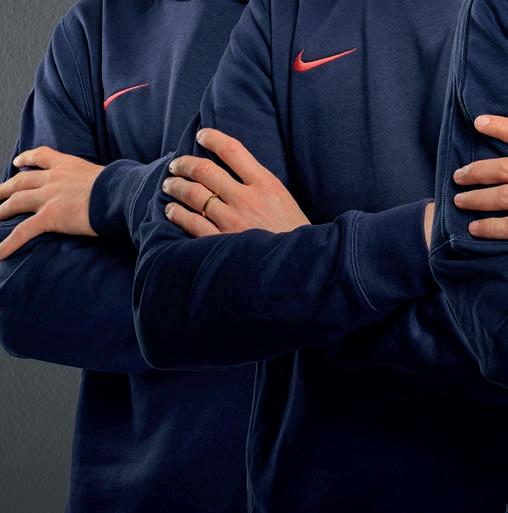
MODERNI NOGOMET ILI STARA ŠKOLA?
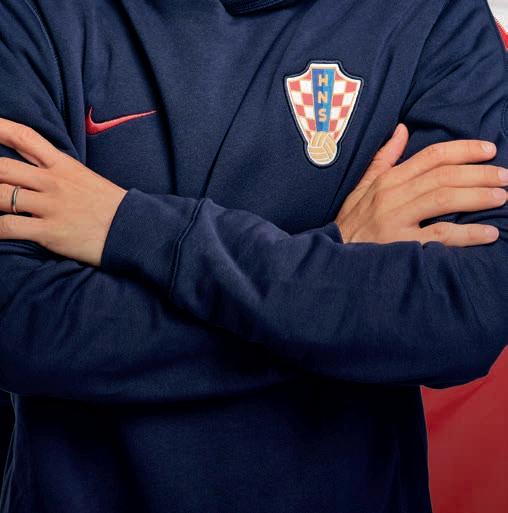

Bitno je zabiti gol. Kad je u pitanju banka, nema dileme.
PBZ digitalno bankarstvo: brzo i sigurno!

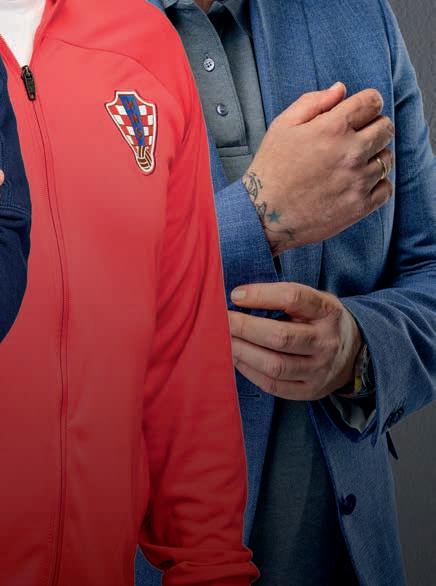





Ovaj oglas informativnog je karaktera i nije obvezujući za PBZ. .
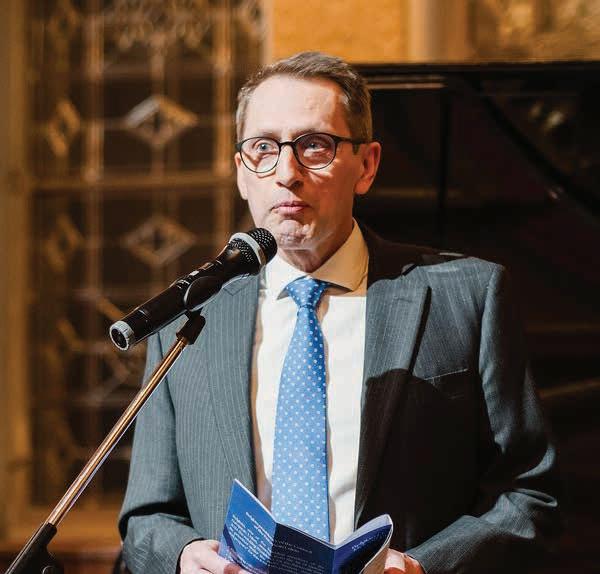 H.E WILLIAM DE BAETS
Ambassador of the Kingdom of Belgium to Croatia
H.E WILLIAM DE BAETS
Ambassador of the Kingdom of Belgium to Croatia
These are indeed challenging times and the Belgian presidency will have to continue dealing with the consequences of the war in Ukraine, the conflict in the Middle East, extreme climate events, the energy crisis, disinformation, a serious migration pressure, uncertainty about the future political path of our big Transatlantic ally, and much more, for Diplomacy&Commerce says H.E William De Baets
Ambassador of the Kingdom of Belgium to Croatia.
Belgium, one of the 6 founding countries of the EU, presides over the Council of the European Union. The priorities of that presidency are the protection of citizens, the strengthening of the economy and preparations for a common future. How official Brussels plans to implement that in practice?
Belgium is indeed one of the founding members of the EU and that explains why it is already the 13th time that Belgium has the rotating Presidency of the Council of the European Union. As Belgium is taking on the presidency in challenging times, the experience we have acquired in the past will be of great use.
The motto of the Belgian presidency is indeed ‘Protect. Strengthen. Prepare.’ and is translated into six thematic focus areas for our work. These are:
• Defending rule of law, democracy, and unity. While protecting the individual freedoms and EU’s citizens’ well-being, respect for rule of law and democracy will make the EU stronger. Uniting and enlarging the EU should also make our continent stronger. The Belgian presidency is therefore committed to support candidate countries in their efforts to join the EU while helping to prepare the UE for future accessions.
• Strengthening our competitiveness. We must aim at ensuring
‘Protect. Strengthen. Prepare.”
Belgium, one of the 6 founding countries of the EU, presides over the Council of the European Union in the first six months of this year.
work as well as access to sustainable social protection and to decent and affordable housing for all.
• Protecting people and borders. The Migration Pact agreed upon during last December provides the framework for the presidency to work on strengthening the external dimension of migration and asylum, especially with our African partners.
• Promoting a global Europe. In pursuing to achieve its foreign policy goals, with respect for the multilateral and the rules-based international system as a basis, the EU
ON TOP OF THIS HEAVY, MORE TRADITIONAL PROGRAM, OUR PRESIDENCY ALSO HAS A PUBLIC PARTICIPATION PROGRAM.
a level playing field for our businesses, enabling them to compete fairly both within Europe and on the global stage. The EU should also become stronger on the global stage, thanks to well defined longterm competitiveness and industrial policies.
• Pursuing a green and just transition. The energy and climate transition will be at the heart of our priorities for carrying on EU’s ambitious agenda, driven by the urgent need to address the triple crisis of climate change, biodiversity loss, and pollution.
• Reinforcing our social and health agenda. The Belgian presidency will also seek to strengthen social dialogue at all levels, promote fair labor mobility, mental health at
must fully mobilize its economic, security and defense capabilities, as well as its development and humanitarian assistance capacity.
Of course, the Belgian presidency will also provide particular attention to maintaining our unwavering support to Ukraine in its fight for its very existence.
This is quite an ambitious program but these priorities are based on the program and common agenda for the 18 months of the Trio made up by Spain, Belgium and Hungary. We continue the excellent work of the Spanish presidency and prepare to hand over to the Hungarian presidency by the end of June.
On top of this heavy, more traditional program, our presidency also
has a Public Participation program. It will work with Citizen panels composed by randomly selected Belgian residents who will come together during 3 week-ends to discuss on the topic of artificial intelligence and its impact on the future of European society. The presidency will also work with the Royal Egmont Institute for International Relations, an independent think tank based in Brussels, on developing a Belgian Expert view on the post-2024 EU.
Belgium will have only four months available for negotiations on behalf of the EU Council this time because the last plenary session of the European Parliament in this convocation will be held in April. How this will affect your plans and the speed of realization of the set goals specifically when we are talking about deadlines and on the legislative level?
It is a particular presidency as there are European elections in June and the European Parliament therefore will hold its last plenary session in April. Thereafter no legislation will be passed anymore until the next institutional cycle starts. It gives us indeed a very tight timetable -in reality, only three months- for negotiating deals and closing the legislative process, with some 60 pieces of legislation we would like to finish. There is a common willingness though to pass as much as possible legislation and to that end the European Parliament is also adding more voting sessions.
But bilateral negotiations and trilogues are currently moving at a hellish pace. It must be terrible for my colleagues in Brussels but I think
10 www.diplomacyandcommerce.hr INTERVIEW










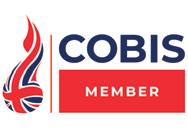
Thematic, creative curriculum Clear process of learning STEAM Extracurricular activities Strong links between home and school Top Humanities school award BRIGHT HORIZONS INTERNATIONAL BRITISH SCHOOL A: Sveti Duh 122, 10000 Zagreb, Croatia W: britishschool-zagreb.hr P: +385 1 374 5146 M: +385 91 537 9711 E: info@britishschool-zagreb.hr DARE TO DREAM, DARE TO BE YOURSELF, DARE TO BE THE CHILD OF THE 21 ST CENTURY
they must also be very satisfied when I see how many agreements are being reached.
Once the legislative work is finished, the Belgian presidency will be able to focus on the Strategic Agenda 2024-2029. It will support the adoption of the Strategic Agenda, prepare discussions on the future of the European Union, and of course work towards a seamless transition to the next presidency.
I seize this opportunity to share some figures and give an idea of the activities during our presidency. More than 530 informal and around 2.000 formal meetings take place in these six months. These include preparatory meetings and informal meetings of national representatives in Council working groups as well as meetings at the level of Ministers and Heads of State or Government. For Ministers and Heads of State or Government alone, nearly 150 formal and informal meetings will be organized, in Brussels but also in other cities in Belgium.
Elections for the European Parliament will be held from June 6th to 9th , and Belgian citizens will have national parliamentary elections at the same time. This year is an election year in more than 40 countries in the world, in the United States, Russia, India, Indonesia, Mexico, which is almost half of the world’s population. In your opinion, in what direction is Europe going and can we have an idea of what the European Parliament and the EU itself will look like after the elections?
It is very difficult to predict the outcome of the elections, nor in Belgium neither in the EU. Over the last years, we have however been witnessing a polarization of our societies and a growing success for political parties and persons who contribute to this polarization. For some voters, voting for divisive parties or candidates is a way to express their dissatisfaction and concerns. There is no reason to think that this tendency will be altered, rather on the contrary. Analysts seem to predict that in many countries we will see a major shift to the right, including populist radical right parties, while center left and green parties would lose votes and seats. According to their views, these elections might jeopardize the stability that the European Parliament had thanks to coalitions of mainstream centrist groups. Also -and that’s somehow paradoxical- the number of Anti-European Members might increase in the European Parliament. If these predictions become true, these
shifts might have consequences for future EU legislation in different policy areas, in particular regarding environment and green transition, and migration and asylum.
At the national level, polarization and voting for more radical parties break traditional schemes and make building a coalition and forming a government more difficult. As you know, Belgium had previous experiences in difficult and protracted government negotiations, and this might be repeated again. But be assured, Belgium will continue functioning well, as we have proved in the past. I suggest anyway to wait for the election results…
ing or strengthening cooperation therein. The first that come to my mind are logistics -including port management-, renewable energy, agri-food industry, and pharma industry. I think that combining Belgium’s strong tradition and knowhow in these fields, with Croatia’s particularly abundant assets -land, forests, water, sun, sea, …- could lead to a very productive collaboration. There are many other possible areas of cooperation, including in specific niches as high-tech enhanced cultural tourism or gaming. I personally very much believe in people-to-people relations and would advocate for increasing the
WE BELIEVE THAT SOCIETIES IN THE COUNTRIES OF THE WESTERN BALKANS WANT TO BECOME PART OF THE EUROPEAN UNION
Croatia and Belgium do not seem to have any open issues. How do you assess the relations between the two countries and where do you see the most opportunities for improving cooperation?
The ties between our two countries are not so strong but overall very good. I like to remind that the official relations between Croatia and Belgium are quite old, and for sure older than we think. Indeed, in the 19th century, Belgium was an industrial and maritime power, constantly looking for new markets. It therefore also opened consulates in different port cities in Croatia. Since then, our continent lived through a turbulent history, with two World Wars and their consequences, the rise and fall of Communism, the creation of NATO and the EU, etcetera. Today, as members of the EU and NATO, Belgium and Croatia share the same values and work together for a prosperous Europe and a better world. But we are different. Our history is different as are our geographical position and neighborhood. And that makes, among others, my job here so interesting.
I believe that there is a lot that we can do together, that there are many field where we can strengthen or start cooperation. Both our countries have a lot to offer and there is plenty of room for political, business, academic and cultural cooperation. But the possibilities for international cooperation are endless. We should therefore look together at the very specific areas in which we, Belgium and Croatia, excel and focus our efforts for start-
exchanges between people of our countries, strengthening academic exchanges and business visits. That would allow us to discover our strengths and identify the potential fields of cooperation.
The official position of the government in Brussels is that it supports the enlargement of the EU to the Balkans, but also to Ukraine, Georgia and Moldova. How realistic is it that in the next 10 years the EU will expand and accept new members, and what is crucial on that path for countries that want to be part of a common Europe?
Belgium’s position is quite clear: we believe that EU enlargement strengthens the EU. But we don’t have to rush it, we just have to ensure that candidate countries that want to adopt European values and want a European future can join the European Union, but not under any conditions.
The candidate countries themselves have a great responsibility. We believe that societies in the countries of the Western Balkans want to become part of the European Union. However, we must be careful that these countries do not move away from Europe, and that is why we must find the right balance, when to start negotiations, as well as what conditions to put before them.
As far as Ukraine and Moldova and Georgia are concerned, it is true that the integration process accelerated after the Russian aggression against Ukraine. That moment really changed the game and gave a full geostrategic meaning to EU enlargement.
Some mentioned the year 2030 as a goal for joining the EU. That is optimistic, which is good, as the only way you can achieve something is to believe in progress. But it is not the deadline we committed to.
How do you see Europe in 10 years and Belgium and Croatia in it?
I have no crystal ball of course but I am quite optimistic about the future of Europe and our countries. The European Union, that originally was a peace project, has been getting stronger and stronger over the years. It is the most successful regional integration in the world, on all levels furthermore. It has faced many crises and challenges and quite often there was said that the very existence of the EU was in danger. But it has always emerged stronger and I am quite confident that will also be the case for today’s and future challenges.
We can expect the EU being bigger in 10 years although it’s very difficult to predict which candidate countries will by then have joined the Union. For other aspects, I would think that in 10 years we will have made progress in most, if not all, focus areas of our presidency that I mentioned at the beginning of the interview. That means that the EU will have done a long way in the transition towards green energy, which also implies a stronger autonomy, making us less dependent on external energy providers. The EU will perhaps not be the strongest economic bloc in the world but should then be at the forefront of technological innovation, among others thanks to increased spending in R&D, a stronger intra-European cooperation and the advancements in the digital transition. Thanks to an assertive industrial policy it will also have succeeded reshoring European businesses, creating jobs and gaining industrial autonomy. The increased energy and industrial autonomy should allow the EU to gain a stronger geopolitical role.
Many of today’s challenges will still be there, perhaps even more acute, and new ones will come up by then. I think about health -with potential new pandemics-, migration -accelerated by the impact of climate change-, the demographic evolution on our continent -with an aging population-, security -with lasting or new conflicts in Europe’s neighborhood-, and so on. We can hope that, as in the past, the EU will be able to adapt to our fast changing world and respond adequately with well thought and implemented policies.
12 www.diplomacyandcommerce.hr INTERVIEW
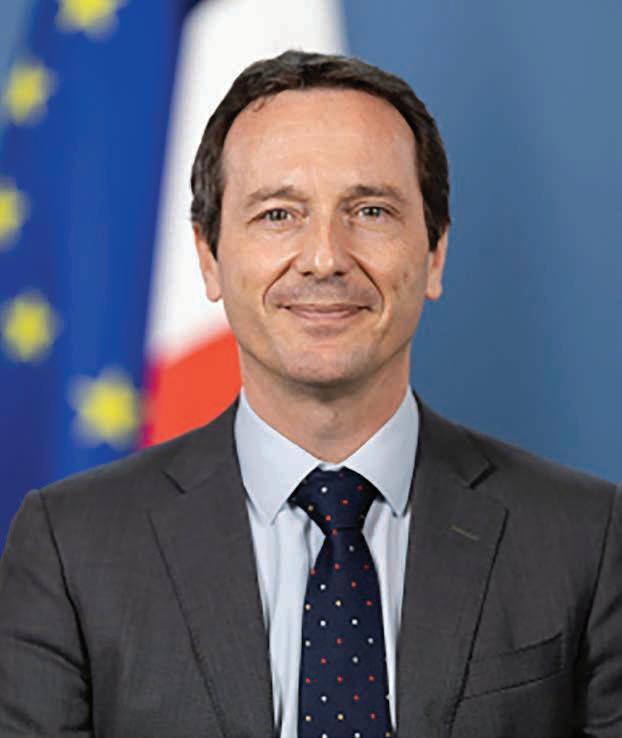 H.E. FABIEN FIESCHI Ambassador of France to Croatia
H.E. FABIEN FIESCHI Ambassador of France to Croatia
In addition to political ones, our economic relations are progressing and trade flows have increased for the past two years. There are more than 60 French subsidiaries in Croatia accumulating more than 1 billion € of investments in Croatia and employing more than 5000 people in Croatia, for our magazine says H.E. Fabien FieschiAmbassador of France to Croatia. The presence of the Croatian unicorn Infobip in France also reflects the fact that France is the number one destination for foreign investment in Europe and has a lot to offer Croatian investors, either from major companies or SMEs, says Ambassador Fieschi.
How would you rate the relations between the two countries? Both are members of the EU, Schengen, NATO. It seems allies in all areas. Are there any issues between the two countries and how to resolve them?
I can confidently say that relations between France and Croatia are excellent. President Macron’s visit to Croatia in November 2021. has sent a clear signal of mutual interest and trust. During this visit, we renewed our strategic partnership agreement, with a special
focus on our dialogue on European affairs and with South-East European neighbours. We have committed to reinforce our dialogue at political level, but also to reinforce bonds between defense and security actors, private businesses, academics… That is what keeps us busy at the Embassy, and I think we are going in the right direction !
Excellent relations between France and Croatia
We are glad to count Croatia as one of our allies and friends.
The fact that Croatia is now not only a member of NATO and the EU, but of the eurozone and the Schengen area, and probably soon of the OECD, makes us even closer. I also have to mention the fact that Croatia has been an observer of the Francophonie since 2004, which also matters for us!
We are glad to count Croatia as one of our allies and friends. We
WE NEED TO STAY FOCUSED AND UNITED IN IMPLEMENTING THE EUROPEAN GREEN DEAL, DRIVING INVESTMENT FOR THE ENERGY TRANSITION IN EUROPE TOWARDS LOW CARBON TECHNOLOGIES.
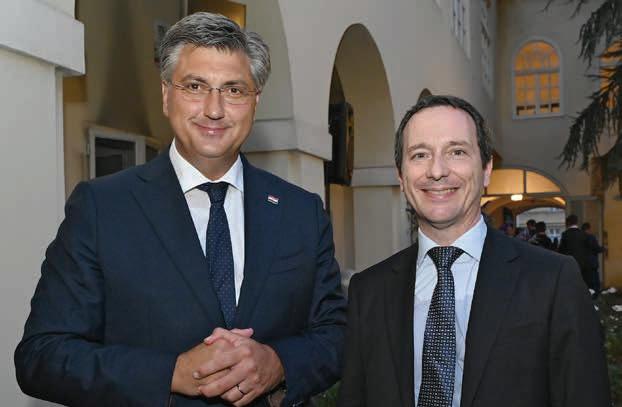
share a common vision and on most of the key issues of today and tomorrow. The perception of Croatia in France and vice-versa is very positive, and this also contributes greatly to this trust between our peoples.
Official Zagreb bought the famous “Rafals” from Paris. That job contributed a lot to raising the level of relations. Are similar activities planned in the future and to what extent?
Indeed, Rafales are a symbol of this new level in our relation, because they are a symbol of trust, of our willingness to work together as Europeans for our common security. It leads us to have an indepth, day-to-day dialogue not only between officials but also to train pilots, technicians, all those who in the end will be responsible for our common security. I am glad to say that the Rafale contract is fully implemented according to its schedule, which contributes to show that France is a reliable, technologicallyadvanced European partner for Croatia.
But we do not want to stop there of course, and the Rafales should not overshadow our deep and diverse relationship. French companies have been active on many transformational contracts in Croatia. In the defense sector, we have been providing Croatia with the
13 INTERVIEW
Mistral missile system to secure its airspace. We can also mention the recent acquisition by Croatia Airlines of 15 Airbus, the management of the Zagreb airport by ADP Group, or the subsidiary of Bouygues, Bina Istra, which develops the Y highway in Istria and Kvarner. We hope there is more to come and we believe that French businesses have the potential to expand their presence on the Croatian market, namely through public-private partnerships which could replace EU RRP funds for the financing of infrastructures, not only in transport but also in health or sports infrastructures.
How do you evaluate the economic relations between the two countries? France invests a lot in Croatia, what do the numbers show (imports, exports, investments...)? To what extent is this process two-way and how much do Croatian companies invest in France?
Our economic relations are progressing and trade flows have increased for the past two years. We are confident that it will soon materialize in a bigger share of the market. France is more present economically than before in Croatia. There are more than 60 French subsidiaries in Croatia accumulating more than 1 billion € of investments in Croatia and employing more than 5000 people in Croatia. And these figures do not even reflect the full scale of French economic presence in Croatia. French exports in Croatia have grown by 57% and Croatian imports in France by 75% in the past 5 years.
We also hope for more Croatian investment in France – Rimac’s investment in Bugatti is a wonderful example of how our know-how and innovation can combine and create magic. The presence of the Croatian unicorn Infobip in France also reflects the fact that France is the number one destination for foreign investment in Europe and has a lot to offer Croatian investors, either from major companies or SMEs.
Where do you see Europe and the EU in 10 years and what are the biggest challenges facing Europe that can threaten our values, way of life...?
I am confident that Europe is part of the solution to tackle the many challenges that we will face. Historically, the EU has been able to grow stronger and more unified through crises. This is what we have witnessed recently with the economic and health crises linked to COVID19, then with the Russian war
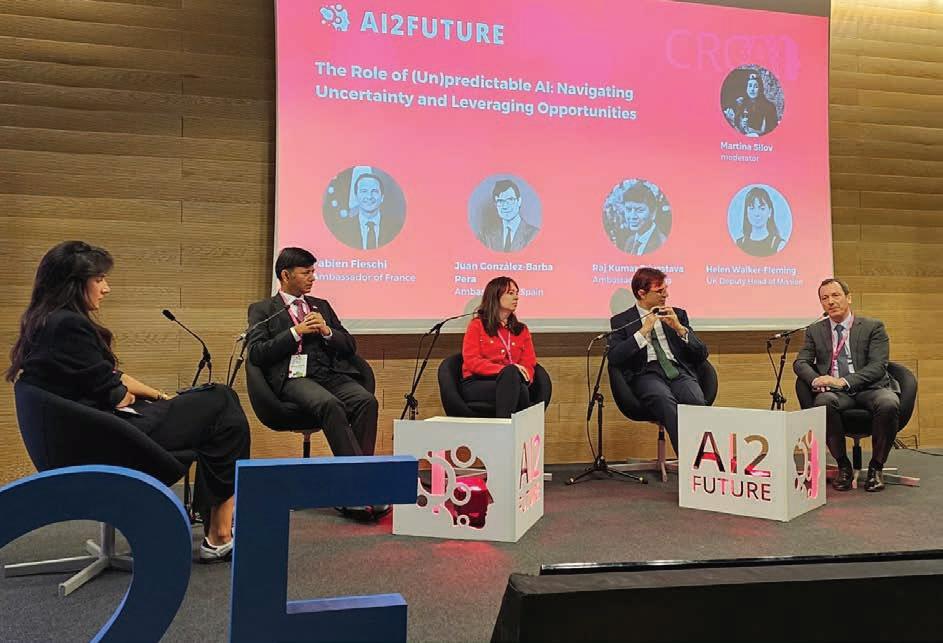
CROATIA CAN SERVE AS A MODEL AND A MENTOR TO COUNTRIES THAT ASPIRE TO EU MEMBERSHIP
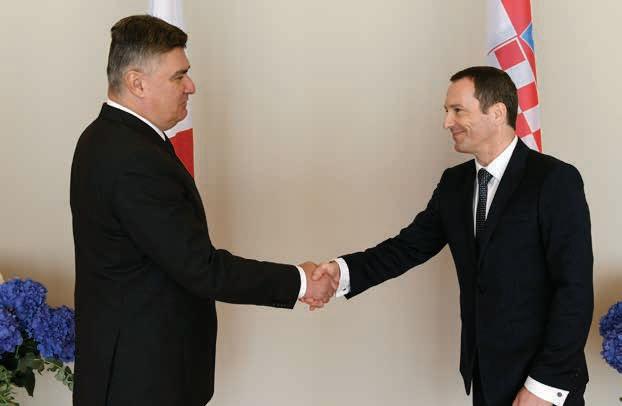
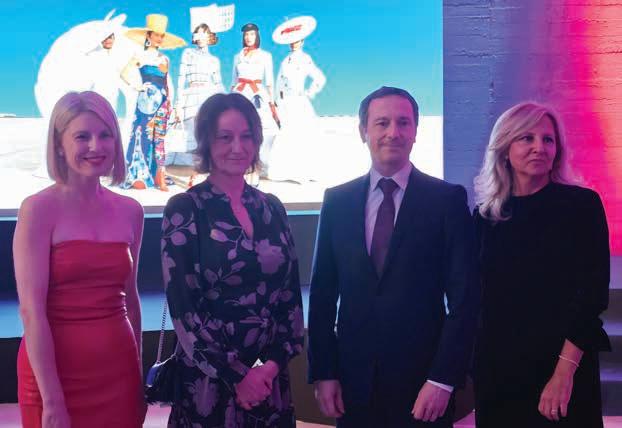
of aggression against Ukraine: the EU has responded quickly, created new ways of working, and consensus in areas where we would never have thought it would be possible.
There will be many challenges ahead, but I would probably mention climate change and the protection of our environment as number one – it will affect our way of life, increase natural hazards, etc in ways and proportions that we are just starting to realize. To tackle this issue, we need to stay focused and united in implementing the European Green Deal, driving investment for the energy transition in Europe towards low carbon technologies. These are areas where France and Croatia share a high level of ambition, commitment and potential, so we can work together and contribute to the global fight against global warming while supporting our economies and communities.
How does official Paris view EU enlargement? In addition to the countries of the Western Balkans, there is also Ukraine and Moldova and Georgia?
President Macron has been very clear in his speech at GLOBSEC in Bratislava on 31 May 2023, when he said that the EU needed both to enlarge and to rethink its governance at the same time. In his own words, “It is the only way to meet the legitimate expectation of the Western Balkans, Moldova and Ukraine, which should become part of the European Union.”. Therefore, we welcome enlargement as neces-
14 www.diplomacyandcommerce.hr INTERVIEW
sary, while maintaining standards and expectations vis-à-vis candidate countries. While we maintain a close interest for countries of the Eastern neighborhood, given the geopolitical circumstances, we have an equally close interest for the Western Balkans. Remember, the region was identified as one of the two foreign policy priorities during the French presidency of the EU Council last year, and we believe we can work together with Croatia to efficiently support Western Balkan countries on their way to EU integration. Croatia can serve as a model and a mentor: thanks to a strong domestic consensus on the accession to the EU, it has carried out relentlessly reforms that were at time painful, but have ultimately transformed Croatia into a better more mature country, that is now converging towards the EU average – or even surpassing it - in many domains.
You are a new resident of Zagreb. How do you like the city and have you already traveled around Croatia? What would you suggest to your friends to visit, try food, etc.?
Actually, thanks to the eurozone and Schengen, coming from France it’s very easy to feel immediately
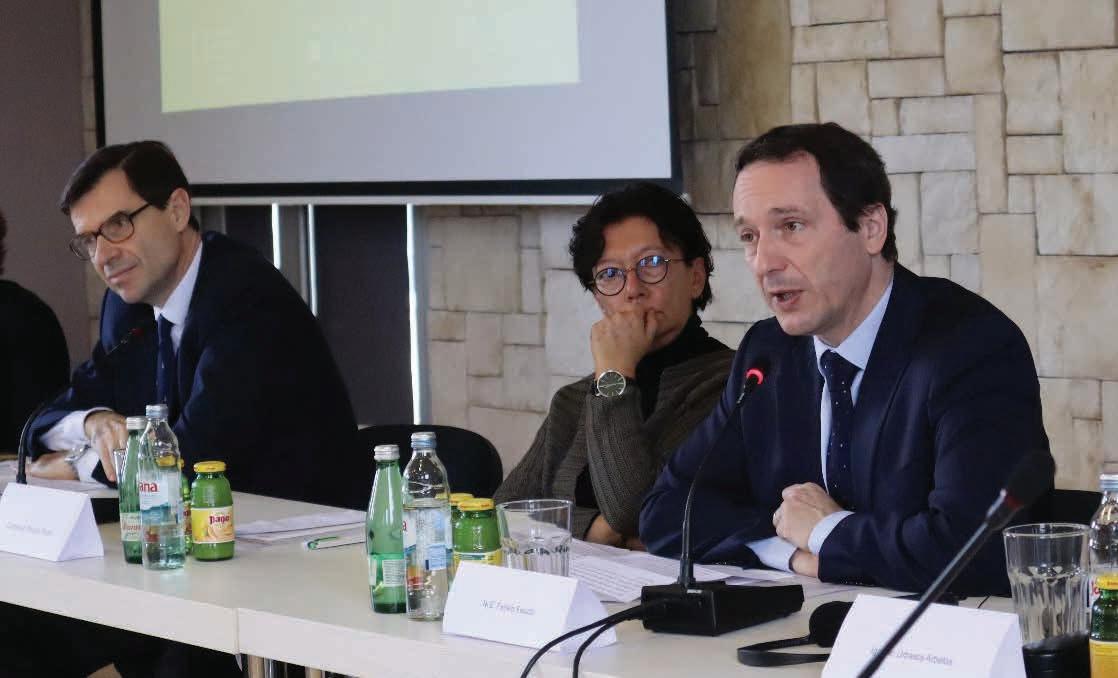
at home in Zagreb while enjoying the original culture that Croatia can offer. As a capital city, it feels like Zagreb is in the « goldilock zone », not too big, not too small, just right: since I have settled, I have been able to enjoy a rich cultural life and to easily escape to natural sites nearby. Though I have spent most of my time in Zagreb meeting with officials, business people,
representatives of cultural institutions and civil society, I already had a few opportunities to visit the rest of the country: scientific seminars at the University of Split, a regional workshop we organised together with the government of Croatia in the Plitvice Lakes region on crimes against the environment, and even an underground ceremony beneath a mountain for the piercing of the
second Učka tunnel in Istria, to which the Prime Minister was also attending. I look forward to visiting more regions and cities, in particular Osijek, Rijeka and Dubrovnik where we have a network of Alliances françaises promoting French language and culture. More occasions to taste the local food and discover the diversity of Croatian culture and landscapes!

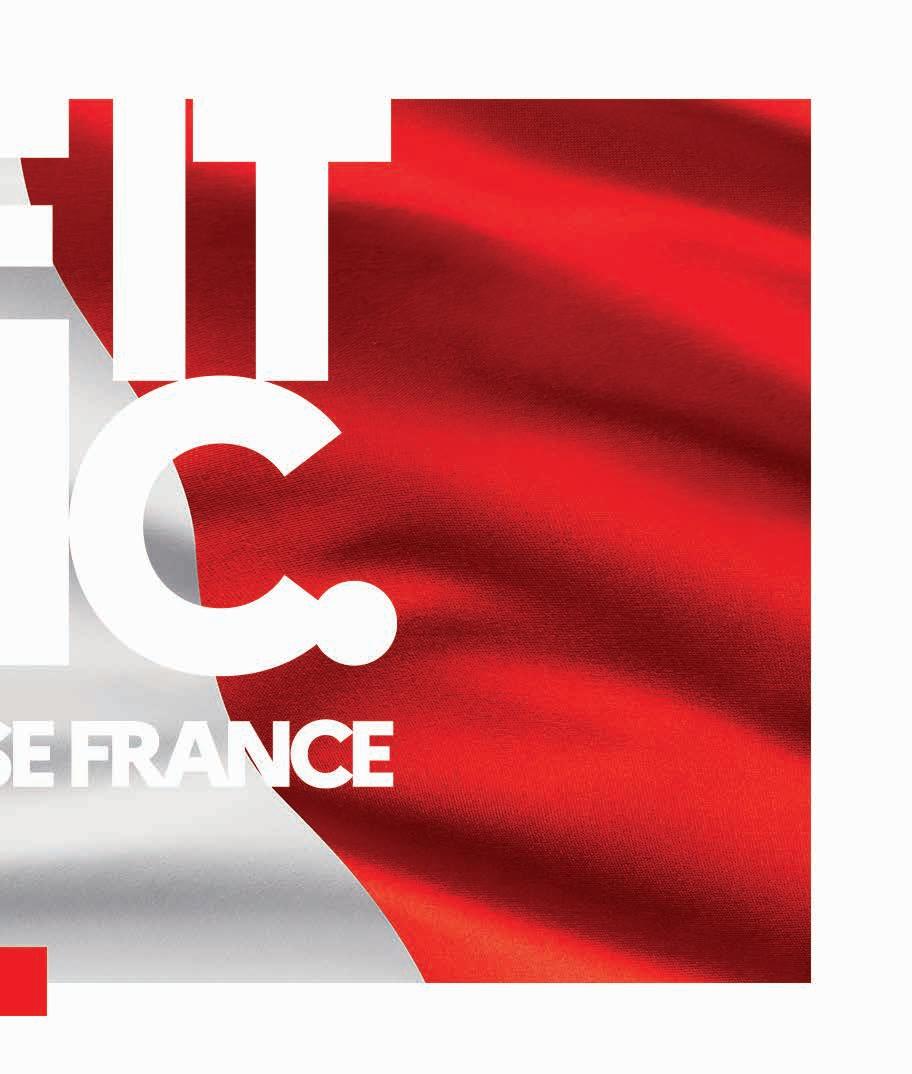
15 INTERVIEW
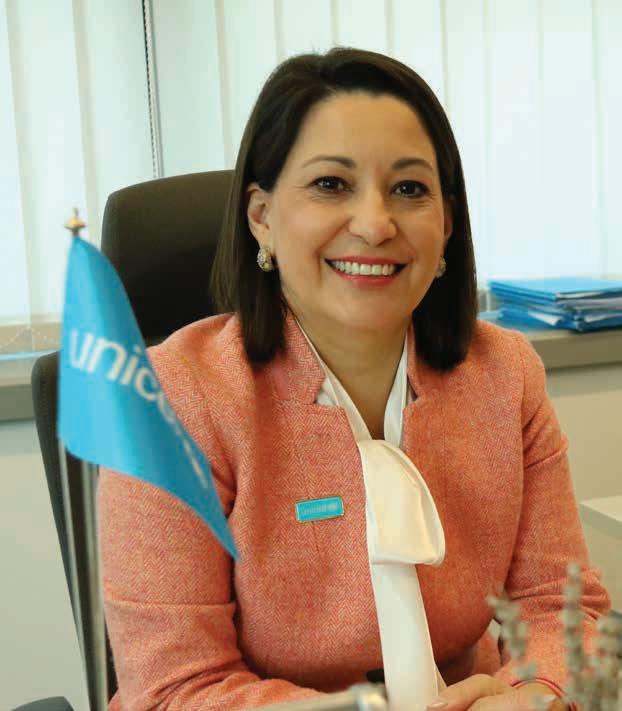 REGINA M. CASTILLO
Leading
REGINA M. CASTILLO
Leading
Uthe UNICEF Office to Croatia
NICEF works in the world’s toughest places to reach the most disadvantaged children and adolescents – and to protect the rights of every child, everywhere. Through its work in 190+ countries, and has the ability to shape governments’ policies, reach the most remote places, and deliver emergency supplies anywhere on Earth within 48 hours. We do whatever it takes to help children survive, thrive, and fulfill their potential, from early childhood through adolescence. Globally and in Croatia, UNICEF’s goal is to ensure that every child realizes his/ her rights to health care, protection, participation and education. We are here to support children especially the most disadvantaged ones, Regina M. Castillo, Representative of the UNICEF Office for Croatia, told Diplomacy and Commerce.
Castillo grew up in Nicaragua, completed her university studies in the United States, and worked in the Executive Office of UN Secretary-General Kofi Annan as an Economic Affairs Officer and at the UNAIDS, UN agency based in Switzerland that fights the HIV/AIDS pandemic, as well as in Peru, Bolivia, and Ecuador. She first started working for UNICEF as Representative in Paraguay, and for the last five years, she has been leading the UNICEF Office for Croatia.
In every country, UNICEF, in cooperation with the Government, agrees on the most important goals for children. Subsequently, through five-year program periods and together with numerous part-
UNICEFalways at the service of children
UNICEF works in the world’s toughest places to reach the most disadvantaged children and adolescents – and to protect the rights of every child, everywhere.
ners – relevant state institutions, the non-governmental sector, and the business sector – we work to fulfill the goals important for children and youth in the country, explained Castillo.
UNICEF’S FOCUS IN CROATIA IS ON THE MOST VULNERABLE CHILDREN – CHILDREN WITH DISABILITIES, CHILDREN GROWING UP WITHOUT ADEQUATE PARENTAL CARE, CHILDREN FROM MINORITY GROUPS, AND CHILDREN AT RISK OF POVERTY AND EXCLUSION.
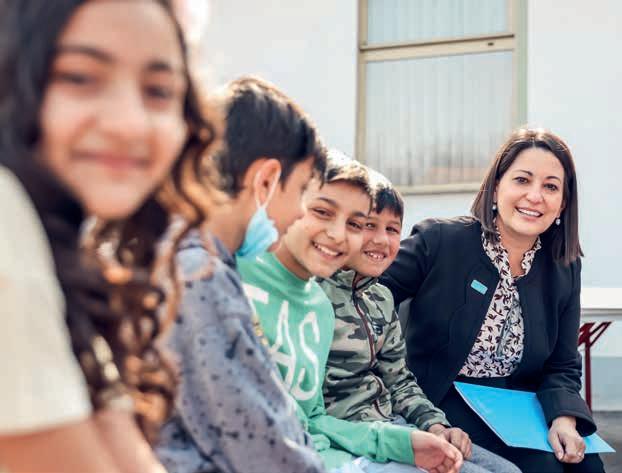
The world is rapidly changing nowadays, can you share some of the programs and good practices that contribute to the fulfillment of children’s rights in Croatia?
UNICEF’s focus in Croatia is on the most vulnerable children –children with disabilities, children growing up without adequate parental care, children from minority groups, and children at risk of poverty and exclusion.
This includes programs for children with disabilities like “Communication for Every Child”, for those who have trouble expressing themselves, and for children’s participation during treatment or hospitalization, as well as programs aimed at ensuring that babies have the best start in life (such as the certification of all baby-friendly hospitals in Croatia and the establishment of the Human Milk Bank).
While much of our work involves infants and small children, our focus has recently also been on adolescents who do not always receive the same attention and care as small children but need support. Through special youth programs such as the platform “ZABUM! – Za budućnost mladih!”, “Schools of Support”, and the program implemented by the Croatian Institute of Public Health “PoMoZi Da”, we are addressing mental health topics and the participation of children and young people
Regina M. Castillo, Representative of the UNICEF Office for Croatia
16 www.diplomacyandcommerce.hr INTERVIEW
UNICEF implemented the pilot program “Child Guarantee” in cooperation with the European Union
in meaningful learning, while also empowering them with 21stcentury skills. For years, we have been working on the development of media literacy skills for parents, teachers, and, of course, children and young people through the medijskapismenost.hr portal and Media Literacy Days.
In cooperation with and funded by the European Union, UNICEF implemented a pilot program
„Phase III: Testing the Child Guarantee in Croatia“ in Međimurje County with the aim of breaking the poverty cycle for the most vulnerable children, such as children with disabilities, children growing up in difficult conditions, and children from national minorities. I believe that the experiences from Međimurje will be recognized at the national and European level as an example of quality intersectoral cooperation that has ensured successful results for the well-being of children and their families.
How important is cooperation with partners who share a common vision of creating a better future for children?
In the implementation of planned program activities, UNICEF recognizes the support of the business sector, NGOs, state institutions, celebrities, experts, and volunteers aimed at achieving systematic change and lasting positive results for the well-being of children.
For the last 8 years, the number of our partners has been growing exponentially. When I look to the future, I see a wealth of opportunities, especially when it comes to partnering with the business sector to enhance children’s rights. Why the business sector? At UNICEF, we know that companies bring so much more to the table than financial resources. The business sector can contribute with research, distribution expertise, supply chain management, business networks, market leverage, and technical expertise – all areas through which companies can have a strong impact on children’s rights.
Do you see any new trends when it comes to cooperation with the business sector, or in the way business leaders look at the impact they have on society changing?
We are witnessing that companies no longer see sustainable business practices as a choice but as an integral and long-term part of their business strategy. In 2016, when UNICEF began to cooperate more
intensively with the business sector on strengthening corporate responsibility (including children’s rights), it was evident that companies were mostly unaware of how they could affect children and their rights (except when it came to the child labor issue), or what that influence means for the business sector as a whole. Our goal is to make companies aware that placing children’s rights at the very center of sustainable development and responsible business behavior is necessary for solving the challenges we are facing today as a society, as well as achieving better business results.
level representatives from business organizations and companies, academia, and young people) in the Advisory Body on Children’s Rights and Corporate Social Responsibility. Together, we work on many exciting initiatives that promote the best standards when it comes to addressing children’s rights in the business sector in Croatia.
In addition, we have launched parenting programs for employees of Croatian companies aimed at enabling a family-friendly workplace environment and supporting working parents in giving their children the best start in life.
UNICEF HAS DEVELOPED THE CSR ACADEMY IN CROATIA TO HELP BUSINESSES FROM ALL INDUSTRIES TO EXPAND THEIR KNOWLEDGE OF THE COMPANIES’ IMPACT ON CHILDREN (FOLLOWING A DUE DILIGENCE PROCESS WHICH HELPS ASSESS THEIR IMPACTS ON CHILDREN AND REPORT THEM IN THE ESG REPORTS).
What are UNICEF’s key business-oriented initiatives?
UNICEF has developed the CSR Academy in Croatia to help businesses from all industries (up to this point, there have been more than 130 participants from 90 different companies) to expand their knowledge of the companies’ impact on children’s rights (following a due diligence process which helps assess their impacts on children and report them in the ESG reports).
However, we are aware that education alone is not enough and that it is crucial to reach decisionmakers in companies and organizations and that’s why we’ve gathered many relevant stakeholders (high-
How can we all join in and help create more beautiful stories for children and their families?
As a self-funded office, UNICEF in Croatia has a special relationship with its donors and supporters, with their feedback and support making our programs better and more relevant.
Croatians are both loyal and generous. I find the generosity of Croatian people extraordinary – 3 percent of the total Croatian population regularly supports UNICEF. The implementation of our activities would not be possible without the support from citizens and companies that have placed the focus of their CSR activities precisely on children. We especially value the
support from our Childhood Guardians and donors who support our work with regular monthly donations which allow us to conduct our programs for boys and girls, as well as react quickly in crisis situations in Croatia.
And despite some very real crises lately – the pandemic, the wars, and climate disasters – partnerships with UNICEF can, and do, shape the future for the better.
What do you think additional efforts are to be invested in, or what do children need most today?
Our task is to ensure that all children – regardless of who they are, who their parents are, and where they live – have the opportunity to live up to their full potential. Childhood obesity has grown into a global epidemic and represents a major challenge for public health, and 35% of children aged 8-9 in Croatia are overweight. We are contributing to the National Action Plan for Obesity Prevention and creating new coalitions and programmes to promote healthy habits, help prevent obesity and improve the nutrition literacy of children, parents and caregivers. Moreover, we continue to work more systematically to enable the best possible safeguarding for children without adequate parental care and support families at risk. We will continue cooperation in the areas of education and youth skill building, ensure pathways for young people to be more effective champions when it comes to climate change and sustainability topics, and foster meaningful engagement of young people in decision-making processes to enhance efforts to respect, promote, and consider the rights of children and young people.
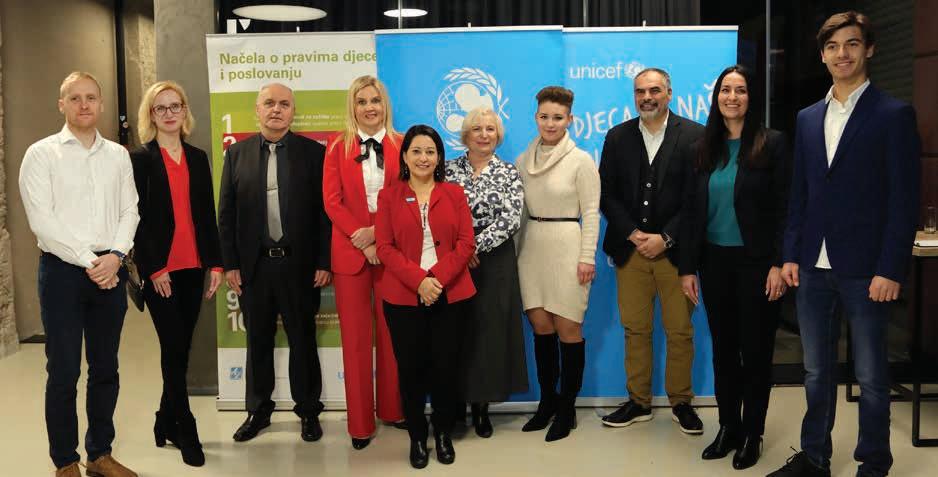
Advisory Body on Children’s Rights and Corporate Social Responsibility 17 INTERVIEW
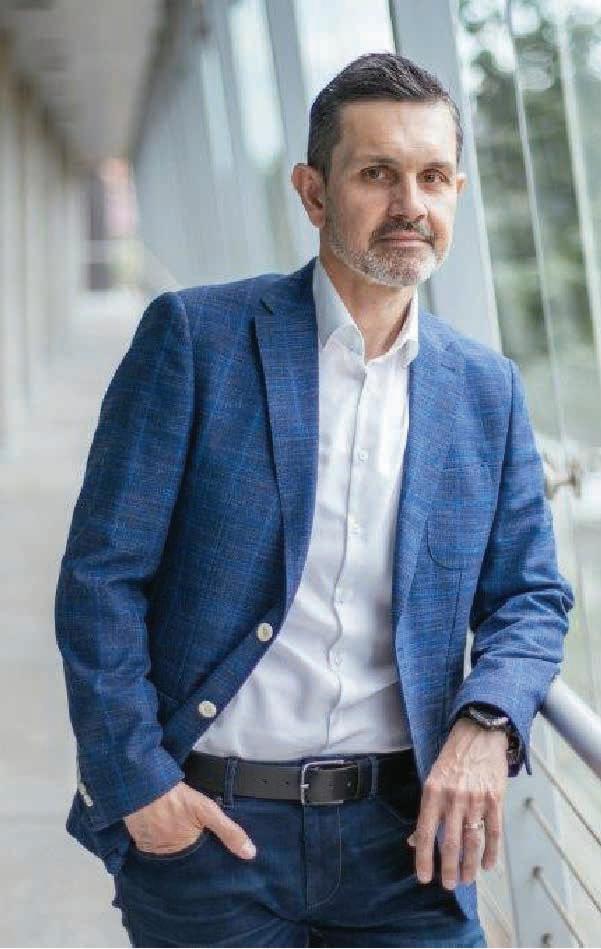




 TOMISLAV RADOŠ, Assistant Professor, Vice President of HGK for Industry and Sustainable Development
TOMISLAV RADOŠ, Assistant Professor, Vice President of HGK for Industry and Sustainable Development
The development of industry in Croatia plays a key role in its long-term sustainable development, which becomes even more important with the demographic challenges it faces, HGK VP for industry and sustainable development Tomislav Radoš told Diplomacy&Commerce. He reveals to us how far we have come in implementation of the Sustainable Business Strategy, as well as the perception of artificial intelligence and its use in the Croatian economy.
As VP of HGK, you are in charge of the Industry and Sustainable Development Sector. How would you evaluate the existing industrial sector in the Republic of Croatia?
Industrial sector in the Republic of Croatia demonstrated stability
and support for economic growth in 2023, with an estimated GDP growth of 2.6%. This year too, real GDP is predicted to increase by 2.6%, as a result of stronger domestic demand. The industry – where we are mainly referring to processing, manufacturing and high-tech activities, is generally more dynamic in terms of market and technology and it is more export-oriented. And export-oriented companies are characterized by more advanced characteristics and excellence compared to those focused only on the domestic market. On average, such businesses are more productive and profitable, and pay higher wag-
An opportunity for industry growth with a green and digital economy
economy




A combination of these transitions allows the Croatian industry to achieve greater productivity, innovation and sustainability.




THE LACK OF KNOWLEDGE AND SKILLS HAS BEEN IDENTIFIED AS THE MAIN CHALLENGE IN THE APPLICATION OF AI, WHEREBY ONLY 5% OF COMPANIES IN CROATIA REGULARLY CONDUCT TRAINING ON AI IN BUSINESS.
es while operating with lower unit labor costs. The share of exporting companies in our industry is smaller than we would like, although their exports have a majority share in the country’s commodity export.
Today, we are aware that there are significant opportunities for the growth of industry in the Republic of Croatia through technological upgrading aligned with double transition towards green and digital economy. The integration of advanced technologies such as artificial intelligence, the Internet of Things and automation can improve production processes, optimize resources and
reduce the negative impact on the environment.
Digitization also opens the door to new business models and markets and encourages the creation of high-quality jobs in multiple sectors. We are pleased by the fact that the IT sector, being a high-tech industry, has an increasingly significant share in Croatian GDP, which is now at the level of 5-7%, and it definitely assumes one of the more important roles in transforming the industry, especially those parts that we call “traditional”, such as wood, food or metal processing.
How important it is to develop industry for the long-term and sustainable development of the country; what Croatia lacks in that segment, and what would you single out as positive examples?
Economy diversification through the strengthening of industrial base and creation of quality work places can promote the
18 www.diplomacyandcommerce.hr
INTERVIEW
country’s prosperity. Key elements of this development include the transition to a smart, digital and green transformation of industry, which would improve productivity, innovation and competitiveness.
However, there are a number of challenges that can slow down the industry development, including a shortage of skilled labor due to an aging population and an outflow of young talent, and a lack of access to market financing for technology and green projects. European funds and cohesion funds, which until now have been important for encouraging development, could be reduced or changed, creating additional challenges in that development context.
Despite these challenges, there are examples of successful industries that show potential for further development. The IT industry, which is growing and creating new jobs, and pharmaceutical companies that have achieved significant success, are sources of optimism.
Linking technological capital with traditional sectors such as agriculture and energy can encourage the modernization and development of those sectors. Also, the revitalization of former industries such as the metal processing, engineering and electrical industries can further diversify the economy and ensure long-term growth.
After successful workshops European Sustainability Reporting Standards (ESRS), you also organized the ESG Academy workshop - Sustainable Business Strategy. What would you single out as the most important points of sustainable business?
Sustainability is becoming a key aspect of running a business, especially in the context of economic development, with growing demands not only from regulatory bodies, but also from investors, customers and potential employees who value the contribution to sustainability increasingly more. With the entry into force of the Directive on corporate sustainability reporting on January 1, 2024, new obligations have been imposed on companies, and awareness of the need to change business is growing. The integration of sustainability into business strategies and management processes becomes crucial, whereby the recognition and management of environmental, social and management criteria becomes imperative.
Transition to a more sustainable way of doing business requires a deeper integration of sustainability
into business models and strategies, which brings long-term benefits despite the initial costs. Companies that adapt their operations to ESG standards quickly can expect competitive advantages, access to new markets and more favorable financing. HGK launched the ESG Academy to educate and empower companies in sustainable business.
17 workshops have already been held with more than 1,000 participants, and the first Croatian ESG rating was developed as a tool for assessing sustainable practices.
Inclusion of all sectors is key to
Artificial intelligence is already used in 50% of analyzed companies, with the most common areas of application being data analytics, chatbots or virtual assistants, and process automation. Respondents see the greatest potential of AI in the automation of repetitive tasks, improvement of business processes and more effective decisionmaking, which indicates the perception of AI as a tool for increasing efficiency and productivity. Ethical aspects of AI development were also highlighted as extremely important, indicating a growing
COMPANIES THAT ADAPT THEIR OPERATIONS TO ESG STANDARDS QUICKLY CAN EXPECT COMPETITIVE ADVANTAGES, ACCESS TO NEW MARKETS AND MORE FAVORABLE FINANCING.
the successful integration of ESG criteria, therefore we launched the Executive Leadership Program, specially adapted for company management, gathering managers and decision makers from leading Croatian companies and organizations. This comprehensive approach ensures that sustainability is not just about meeting regulatory requirements, but becomes a core business value that enables the creation of positive impact on society and the environment.
The Croatian Chamber of Commerce conducted research on the perception of artificial intelligence (AI) and its use in the Croatian economy. What are the results and who was the target group of the research?
The research analyzing the perception and use of AI in the Croatian economy included 342 companies of different sizes, with micro-enterprises making up the largest part of the sample. It was conducted in all counties, with an emphasis on the City of Zagreb, and the majority of respondents came from IT and communications sector, the processing industry, and professional, scientific and technical activities.
Despite a general sense of uncertainty and concern in the society, 70 percent of businesses express optimism and curiosity about AI. However, more than two-thirds of companies do not have a clear AI implementation strategy, and lack of knowledge stands out as the main obstacle. Despite this, 82% of businesses expect significant financial benefits from AI.
awareness of potential risks and challenges that come from the safe use of artificial intelligence.
How much do these results help you create programs and activities in the future and what can you expect in this regard? What are your plans in the coming period?
Introducing AI into an organization is more than just technological readiness. It requires the creation of a culture that encourages innovation, the development of skills and talents, and strategic planning that actively recognizes and addresses ethical and socio-economic implications. Similar to global trends, Croatian companies face challenges in this transformation process. Successful implementation of AI requires compensation for the lack of required skills and recognizing the key role of strategic planning in ensuring alignment with business goals and achieving maximum benefits.
The lack of knowledge and skills has been identified as the main challenge in the application of AI, whereby only 5% of companies in Croatia regularly conduct training on AI in business. In order to remove this obstacle, it is important to intensify educational programs that will not only ensure the adoption of new skills, but will also educate employees about the advantages and limitations of artificial intelligence and its ethical and social implications.
In this sense, the Croatian Chamber of Commerce (HGK) is launching an AI academy whose first strategic workshop will start in
mid-March, and it will be followed by sectoral workshops on the application of AI in industry, tourism, law and healthcare.
Where and how do you see the Croatian economy in 10 years? What should “worry” us, and where do we see our chance?
Although it can be said at any time that the next 10 years are important for our economy, it is very important to know and be aware of this today for several reasons. Primarily, there is the transformation of global value chains through an almost continuous change of geostrategic factors, to which answers and tactics for sustainability and resilience need to be found. On the other hand, the number of working-age population started to decrease and this trend will continue. And the third important aspect is the digital and green transformation, where technological and low-carbon innovations and trends are significantly accelerating on a global level. Croatia must not allow itself the potential risk of sleeping through and not reacting to these factors.
The chance for Croatian industry certainly lies primarily in the fastest and targeted adoption of new and higher technologies. How else to survive considering the above? On the other hand, they would have to finally create an identity for the Croatian industry, as we have for sports or tourism, which cannot seem to be created. We have the newly adopted Smart Specialization Strategy until 2029, and seven industries such as health, energy, security, mobility, food and wood industry, and IT are highlighted in it, and they are already deeply woven into our economic blood. There is also the Plan for Industrial Transition, which is closely based on the policy of smart specialization and it directs even more the regional development in industrial niches specific to individual regions.
I would rather end with what we should be concerned about and what we should be aware of. This means that the damage will be difficult to repair in terms of catching up in regards to competitiveness if we do not manage to gather and direct all the forces in industry and politics in the next 10 years or so into what we have identified and initiated. It certainly goes without saying that we are continuously improving it and that we are determined to keep that optimal course through the stormy geopolitical and economic (stormy) times ahead of us.
19
INTERVIEW
British School Bright Horizons
Milena Prodanić Tišma became a Co-Opted Member of the COBIS Board
COBIS - Council of British International Schools is governed and advised by a Board consisting of international school Head teachers and Governors and education professionals.
The COBIS board is a board that has active members who at the forefront have the children’s wellbeing and the desire to make the children’s educational journey as fulfilling and empowering for today’s society as possible. Members of the board are from various parts of the world which makes the trading of experiences amongst the members even more valuable. In general, all COBIS schools follow a curriculum that is focused on British educational ethos and values.This valuable partnership allows them to have a strong safeguarding culture which includes not only an unwavering commitment to child protection but also the emotional, physical and mental health and wellbeing of every child.
Since being co-opted in the board, Ms Prodanić Tišma will have the opportunity to engage first hand in topics that are ever so relevant to today’s school, education and global changes happening in the world. Being included in this board will also help the school principal stay up to date with all the new procedures and protocols that need to be implemented in schools to make sure that their school is also up to date with changes and new implementations that need to be made.
Since becoming a Board member, the school principal Ms Prodanić Tišma, recently attended her first COBIS meeting as an official Co-opted member. She got the chance to meet all her new COBIS board colleagues and attend the reception at the House of Lords in London. During their meetings they discussed topics related to future changes within the educational systems, how to further develop international school environments and what a school in the 21st century requires.
Furthermore, Bright Horizons is now nearing the end of their 2-year long Erasmus+ project, AI-COSMIC. Since 2022, they have been working on this project which has the following main goal: introducing artificial
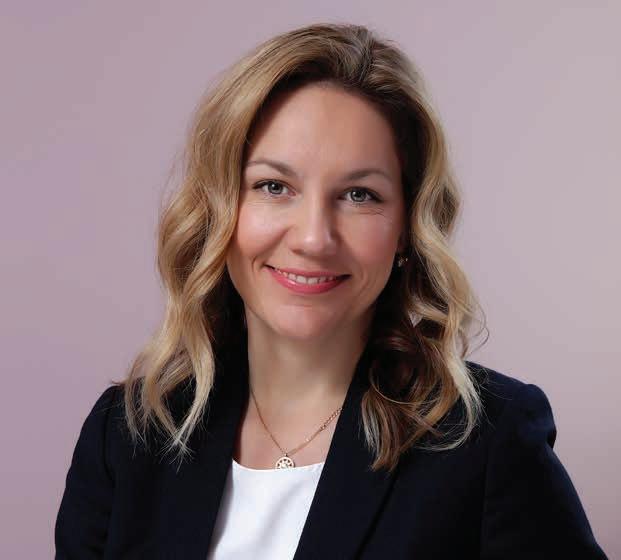
SINCE BEING CO-OPTED IN THE BOARD, MS PRODANIĆ TIŠMA WILL HAVE THE OPPORTUNITY TO ENGAGE FIRST HAND IN TOPICS THAT ARE EVER SO RELEVANT TO TODAY’S SCHOOL, EDUCATION AND GLOBAL CHANGES HAPPENING IN THE WORLD.
intelligence and coding in primary schools! The project is co-financed by the Erasmus+ program of the European Union, as part of KA2 and in total 6 countries are included. Its main goal
is to encourage the familiarization with the principles of artificial intelligence and basic coding skills among elementary school students through the use of Minecraft in Education.

With the inclusion of gamification and experiential learning in the teaching process of new and existing subjects (e.g. mathematics, English, science and informatics), pupils are getting the chance to learn the curriculum materials through a gamebased approach which has shown to interest pupils more and as a result they are also engaged more during the lessons. The pupil’s motivation and eagerness to learn has also risen for almost all subjects!
In this project, students are truly getting the opportunity to be active participants. Up to now, they have designed and created one of the 5 Minecraft worlds representing Croatia through the “Island of Krk”. Not only did they create the world but they have created the mission and tasks needed to play. Other than their own world, they also get to try out all the worlds representing the other countries involved in the project. As mentioned before, this is truly an engaging project where pupil’s creativity and imagination can really be expressed. Other than the pupils, the teachers also receive training on AI and also on gamification and Minecraft. This is a topic that is so popular in today’s world and it is a skill that definitely all teachers and school workers need to get informed about. In order for the pupils to be taught a new skill, of course the leaders of this project also need to be educated and informed about this topic which is why this project is great because it encompasses all members of the school community.
Even though the project is ending this year during the summer of 2024, there are still many tasks that will be happening such as an open public event which will invite families and children to come and see first-hand what the children have created within the Minecraft game and as the final step, all participants are actively collaborating to make a handbook that teachers will be able to use as a guideline to incorporate Coding and AI with the use of Minecraft education into their formal lesson curriculums. This will help to make sure that the pupils of Bright Horizons obtain the necessary skills and knowledge relevant to today’s modern and digital world that surrounds us all.
20 www.diplomacyandcommerce.hr CORPORATE
DIPLOMACY & COMMERCE PRESENTS
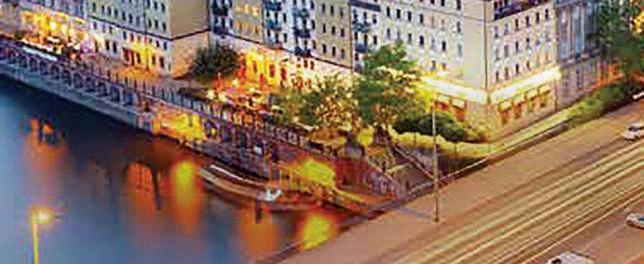
Germany



Ambassador of the Federal Republic of Germany in the Republic to Croatia
GERMANY AND CROATIA NURTURE
CLOSE PARTNERSHIP RELATIONS
FULL OF TRUST
Germany appreciates Croatia as a partner with a European outlook that contributes to making our "home Europe" a better place and shares our understanding of the rules of the game.
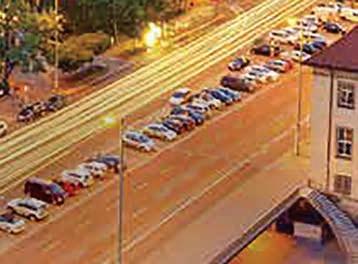



director of the German-Croatian Chamber of Industry and Commerce
AHK - THE LARGEST BILATERAL BUSINESS ASSOCIATION IN CROATIA
Our network in Croatia currently counts more than 340 companies with over 113,000 employees
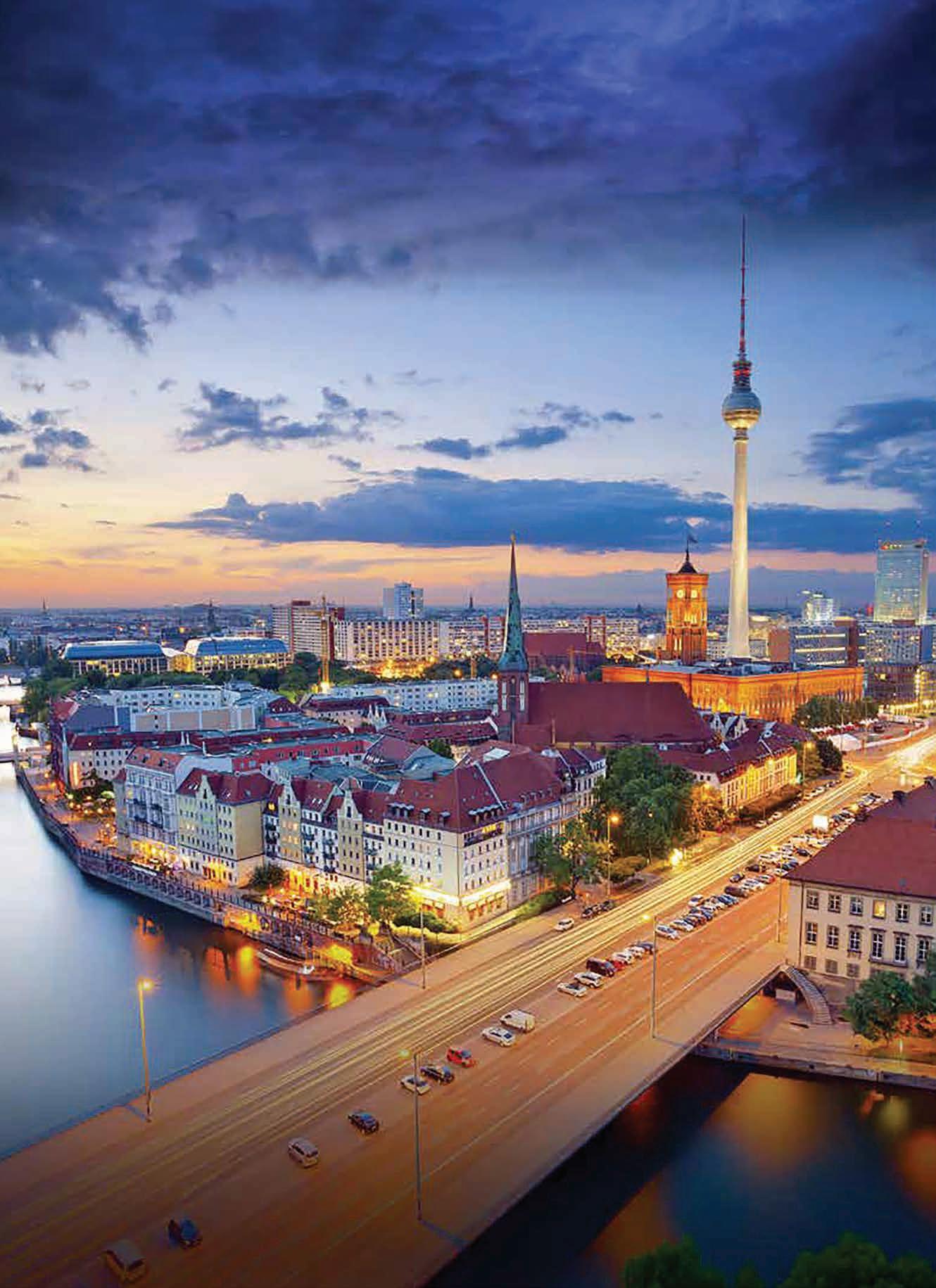


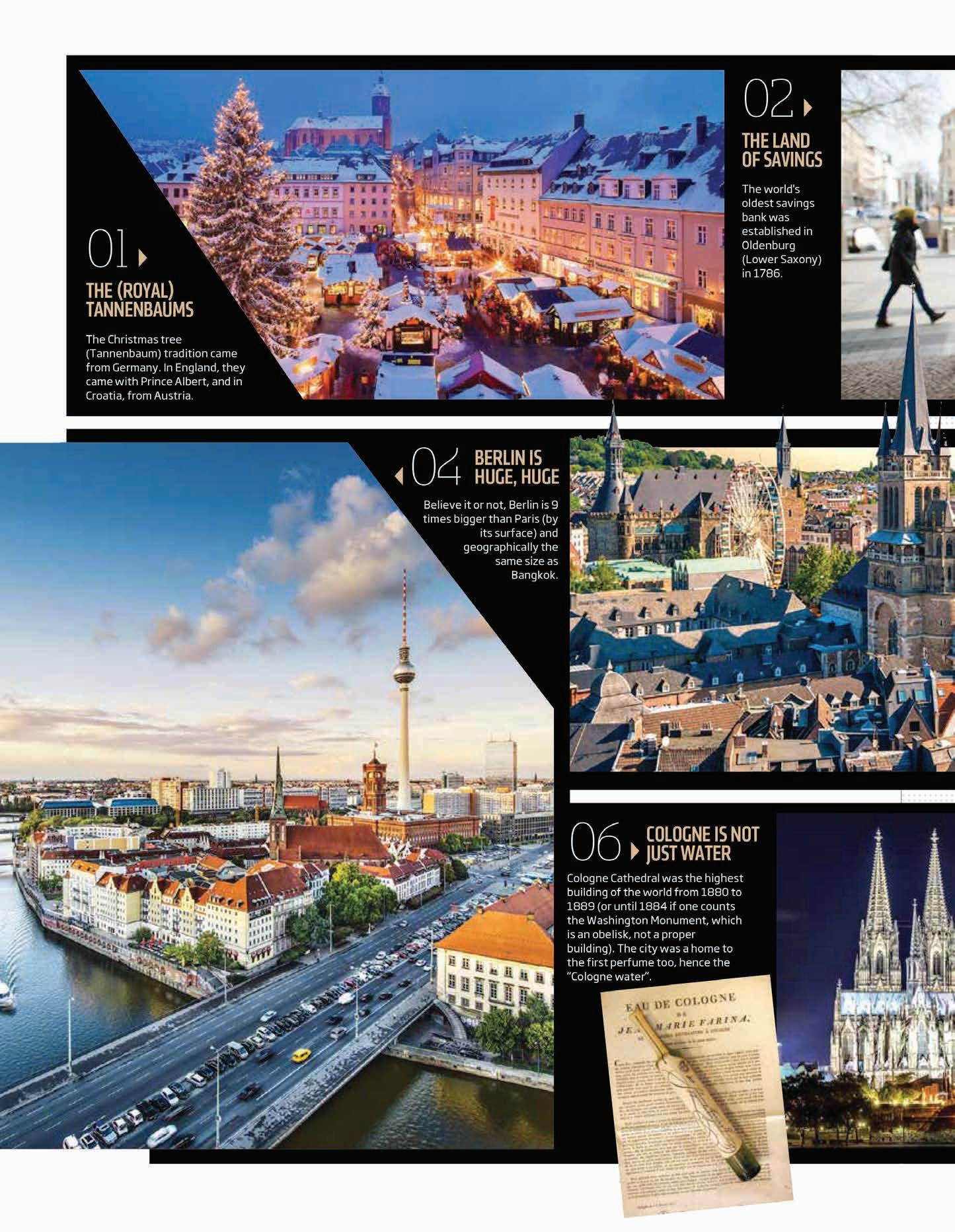
GERMANY 22 www.diplomacyandcommerce.hr
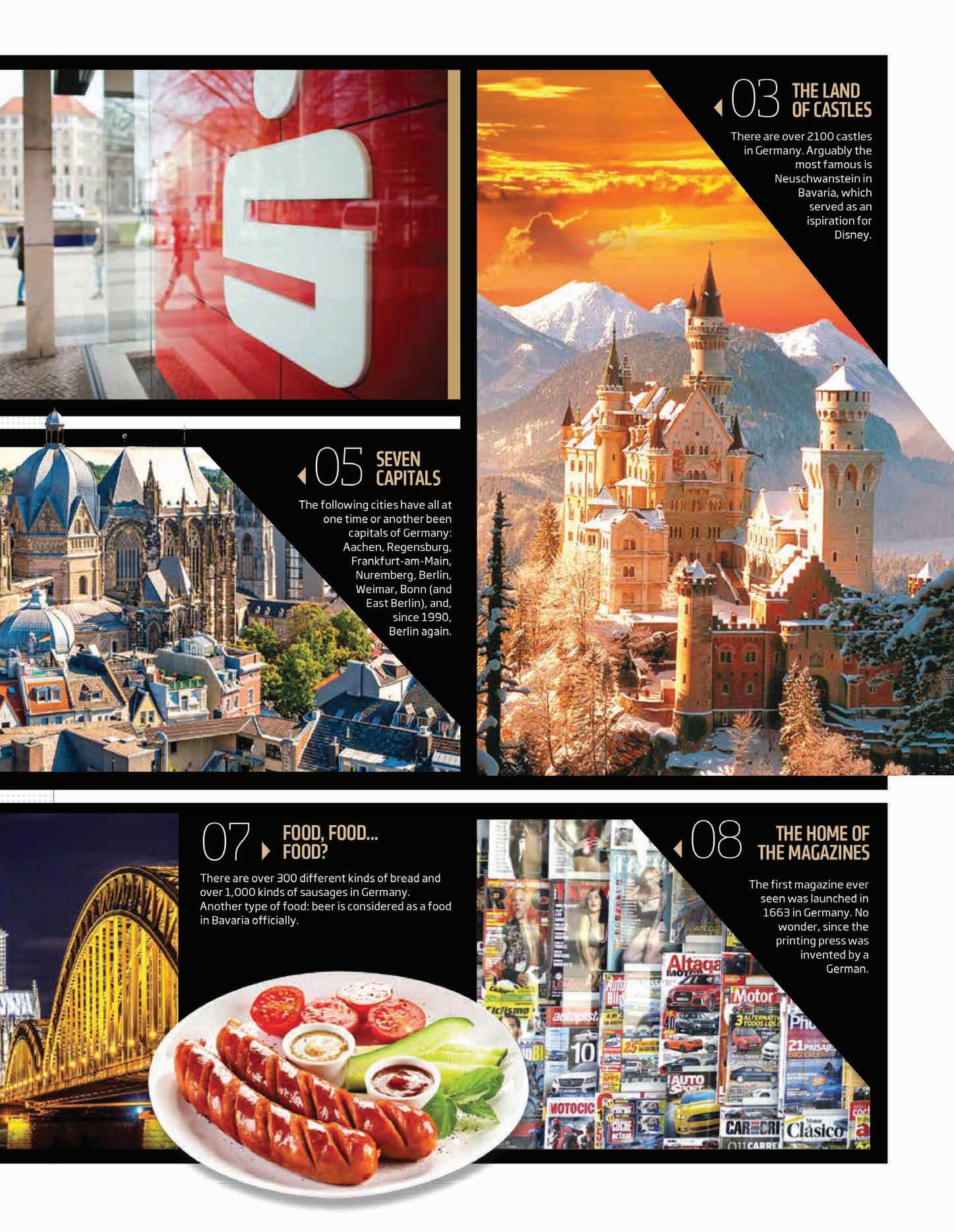
23
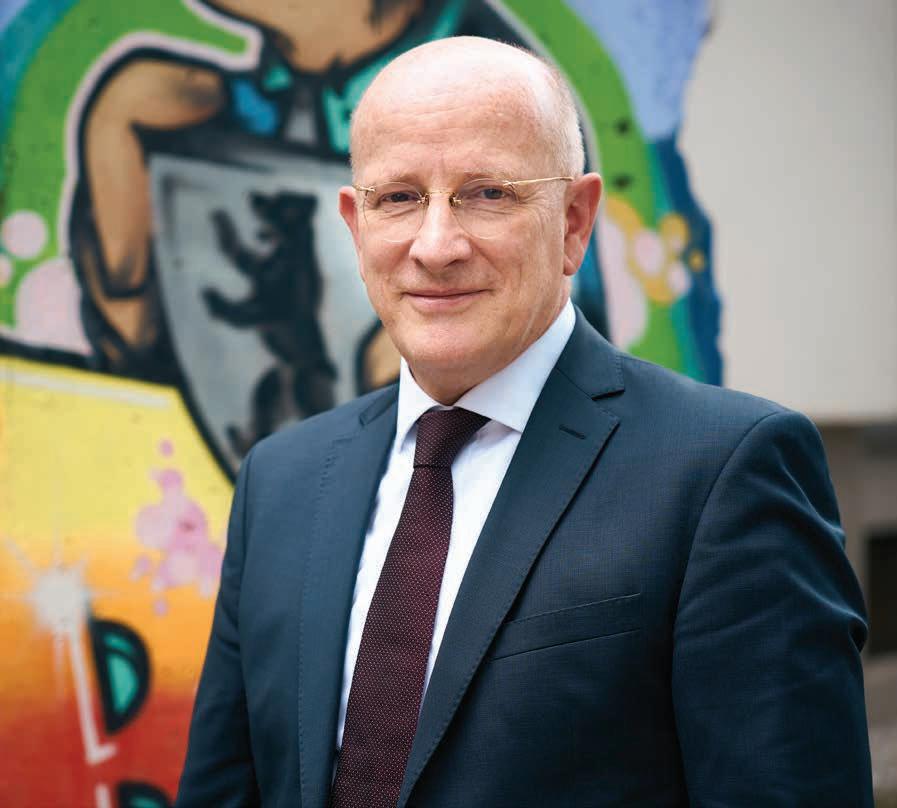
GERMANY AND CROATIA NURTURE CLOSE PARTNERSHIP RELATIONS FULL OF TRUST
Germany appreciates Croatia as a partner with a European outlook that contributes to making our “home Europe” a
better place and shares our understanding of the rules of the game.
For our two countries, I hope for an even stronger political partnership and for deeper economic cooperation. For the EU as a whole, I am confident that it will be an even stronger player on the global stage, its members acting efficiently and intelligently with one voice on the basis of shared values such as democracy, rule of law and human dignity. And in ten years time we will be more than 27 Member States. And Ukraine will prevail. As to Russia, I can only hope that it will undergo change and become a constructive member of the international community, for Diplomacy&Commerce says H.E. Christian Hellbach, Ambassador of the
H.E. CHRISTIAN HELLBACH Ambassador of the Federal Republic of Germany in the Republic to Croatia
Federal Republic of Germany in the Republic to Croatia.
It seems that Croatia and Germany do not have any issues and that the relations between the two countries are allied in every sense. How do you evaluate these relationships and is there any point on which additional work could be done?
It is true that relations between Germany and Croatia are friendly and partnership. This does not mean, however, that there is no room for improvement; we should not lay back and be content with what we have but instead strive constantly to renew and
deepen our bilateral cooperation in areas of common interest, also responding to new circumstances and challenges.
One of my favourite topics is energy transition because countering climate change is one of our most important foreign policy objectives and because I see Croatia as part of the emerging common European market for energy from renewable sources. Experts tell us that Croatia’s potential for producing energy from renewable sources is at least 7 to 8 times higher than its own needs, even after full decarbonisation. This means, in short, that Croatia could become a net energy exporter. Energy exports could boost growth and development in Croatia and help satisfying, at the same time, our demand for green energies.
Another important issue is the future of the European Union. In an ever more complex global context we cannot afford to keep doing business as usual. The EU must become more efficient in its decision-making, more sovereign in its dealings with the world. Hand in hand with this goes the enlargement of the EU, especially here in Croatia’s immediate neighbourhood. Both our countries strongly support enlargement. We are allies on this issue. My sense is, however, that we could cooperate even more closely also on this subject. Also, we strongly believe that the EU and its institutions need to change in order to be capable of absorbing a relatively large number of new members. Already now, at 27, we face operational issues and enlargement is supposed to make the EU stronger, not just bigger.
Let me mention another very practical issue I have come across in discussions with our partners, particularly at the local and regional levels, namely waste management. This is not an easy task, but many German municipalities and companies have tackled it in the past and managed to solve numerous problems. That is why we are working to promote the exchange of know-how and mutual support in this important task for the whole of Croatia.
In German we say “wer rastet, der rostet”, in Spanish “camarón que se duerme, se lo lleva la corriente”. Both proverbs mean, basically, that if you rest you lose. We need to keep going and finding new ways to further strengthen our partnership.
You often like to say: “Germany and Croatia nurture close partnership relations full of trust.” Our most important joint task in a difficult geopolitical environment is: to strengthen Europe, defend democracy and international law!” How can unity be strengthened, democracy and international law be defended today in times of crisis, insecurity, and war in the heart of Europe?
The European Union is a unique project in the history of mankind. On a continent divided for centuries by war and conflict, it has secured peace, freedom and prosperity for almost 450 million people. I feel very fortunate to be a citizen of such a Union but I would not take this for granted.
GERMANY
INTERVIEW
24 www.diplomacyandcommerce.hr
Duga

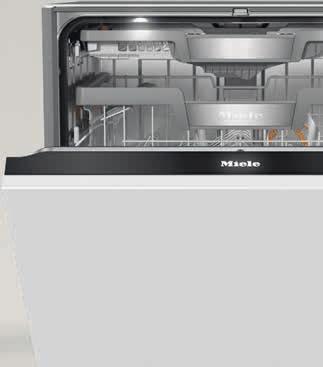















Saznajte više o našim ograničenim jubilarnim ponudama na miele.hr/125godina
priča ukratko: 125 godina kvalitete.
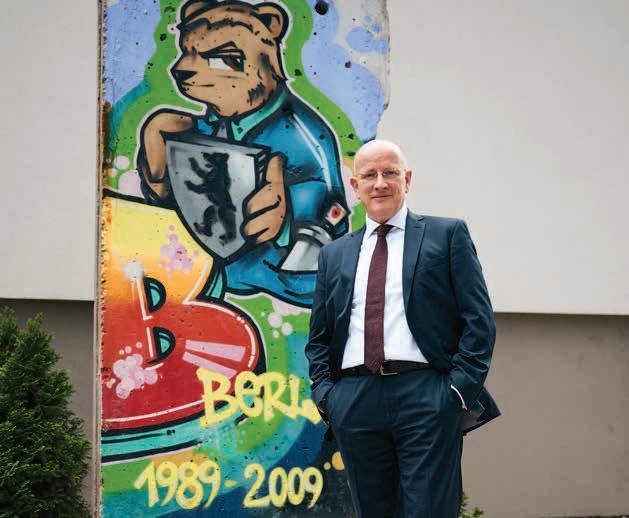
But we must work hard to keep it that way and, eventually, make it better, more resilient, more competitive. The EU must be capable to act more quickly and more effectively in defence of our sovereignty; at the same time, we must strengthen the EU’s democratic legitimacy and make sure that the rule of law as well as human rights and fundamental freedoms are respected. This was never as clear as it is now in the face of the Russian aggression against Ukraine. The war in Ukraine, this is in Europe by the way, reminds us also of the importance of safeguarding the rules-based international order.
Almost 3 million Germans visit Croatia annually, while officially almost half a million Croats live in Germany. Where do you see the bond of closeness between two peoples and two countries? Culture, economy, history...?
In all these areas and many more. In relations between states, it is often institutions that play the main role - governments, ministries, parliaments, even regions, cities and towns. But it is only when people really communicate, when they get to know each other, that deeper understanding and partnership emerge. And in this respect, our two countries really have a lot to show. But it is much more than that - our economic ties are very strong; Germany has been Croatia’s largest economic partner for decades. Many Croatians have studied or went to school in Germany and there is a growing number of German students in Croatia, particularly medical students. More and more Germans who are either digital nomads or can afford to work from home chose to settle in Croatia.
Also politics connect us, believe it or not; not only are we partners in the EU, we also share certain reflexes when it comes to international relations, for instance in the case of the Russian aggression against Ukraine. Also I am told that many Croatians still remember Germany’s support for Croatia in the early 1990s.
I am glad, in any case, that the relations between Germany and Croatia are much more than just formal, official or institutional.
2024 is a “super election year”. From elections in different countries to elections for the European Parliament. There are also American elections, and even in Croatia itself. In which direction do you see the development of events and in which direction is Europe going? To what extent is it possible to threaten the European project itself and the strength of the EU? Where do you see the biggest challenges and how to solve them?
2024 is, indeed, a “super election year”. I can’t really tell you which direction things are taking and even if I knew I guess I should not comment in public. What I can say, however, is that we should all get out to vote when we are called to elections. I have little understanding for those who complain about the alleged lack of democratic legitimacy of our institutions and then abstain from taking part in democratic elections.
This is also true for the upcoming European election. We have to elect our representatives in the European Parliament, in the case of Croatia 12 of them. It is also the European Parliament that represents us, the EU citizens, so it is very important that we all participate in the vote. Turnout in European elections has been relatively low in the past, particularly in Croatia; I hope that we will see an upward trend this time. People should consider that the European Parliament has a say in most of the decisions at the European level that directly affect our daily lives.
In my opinion, the main challenge this time around is to defeat populism, to avoid falling to the temptations of simplistic solutions to complex problems, and to protect democratic values and institutions as well as human dignity.
The official position of the government in Berlin is that it supports the enlargement of the EU to the Balkans, but also to Ukraine, Georgia and Moldova. How realistic is it that in the next 10 years the EU will expand and accept new members, and what is crucial on that path for countries that want to be part of a common Europe?
ing context of international relations? These are the fundamental questions, and how we answer them will have a profound impact on our ability to act and on our, i. e. European, sovereignty. As mentioned before, already with 27 members we face challenges when it comes to our ability to decide and act quickly. With ten or more new members, the problem can only get worse if we don’t change. That is why we are calling on all to take part in the debate on the future of Europe. There is no single model to follow. The solution will be found in a constructive debate. Participation is key. Everyone’s arguments and positions need to be heard, and I hope that many EU members, including Croatia, will play a more active role in this process.
Climate change, energy, gas, green energy - these are global topics that, in addition to everyday ones, occupy the attention of citizens and their governments. Where do you see the role and significance of both Germany and the rest of the EU and Croatia in solving these problems?
Germany is firmly committed to achieving climate neutrality by 2045. At the moment, 54 percent of our electricity comes from renewable sources - mainly wind and solar. It is also worth noting that we have completely phased out Russian gas, oil and coal which was no easy task given the needs of our industry. By 2030, 80 percent of our electricity will come from renewable sources, and by 2035, all of it. The EU as a whole has set itself the ambitious target of becoming carbon neutral by 2050. It will be helped greatly by the fact that renewable energy is cheaper to produce and much easier to use in a “decentralised” way, independent of unpredictable prices on “world markets”, as is the case with fossil fuels.
Three years earlier than originally promised, we have increased our funding for international climate projects from the federal budget to € 6.4 billion, with additional sources just under €10 billion
The German government has long been a strong supporter of EU enlargement. Recently, the idea of enlargement has gained momentum also throughout the EU due to the aggression of Russia against Ukraine and various other geopolitical considerations.
The answer to your question about the next ten years lies, however, in the capitals and with the political leaders of the candidate countries because, as we all agree, enlargement must remain a merit-based process. The reasons for this are simple; taking on board countries which do not fulfil all standards would jeopardize the functioning of the Common Market and the European institutions; at the same time, the country in question would probably suffer economically from being fully exposed to a very competitive market.
In addition, there is another important consideration linked to enlargement. How do we make the EU more effective in decisionmaking, more adaptable to the rapidly chang-
With our partners in the EU and beyond, we promote energy transition and the fight against climate change also at the international level. Just one example: in 2022, three years earlier than originally promised, we have increased our funding for international climate projects from the federal budget to € 6.4 billion, with additional sources just under €10 billion. This transition must also be about fairness. No country or part of society, including our own, should have to choose between development and climate action. That is why we are working with other EU countries and our global partners to ensure that development goes hand in hand with ambitious climate action.
For Croatia, and I often say this, the green transition could bring not only climate neutrality, but also new opportunities for development, new jobs and income. This is the integration into the already mentioned common European green energy market and the use of the potential of renewable energy, sun, wind and geothermal energy. Statistically, Croatia is in a good position when it comes to clean energy, because a lot of electricity here comes from hydroelectric plants. Much of Croatia’s potential remains unused, however. And, let me be frank here, I sometimes feel that unnecessary burdens are placed on potential investors.
GERMANY
26 www.diplomacyandcommerce.hr

Get
ready

AHK - THE LARGEST BILATERAL BUSINESS ASSOCIATION IN CROATIA
Our network in Croatia currently counts more than 340 companies with over 113,000 employees
INTERVIEW
Last year, AHK in Croatia celebrated 20 years of work. AHK has grown into the largest foreign chamber of commerce in Croatia. With the director Mrs Stefanie Ziska, we talked about the plans they have but also concrete projects, such as “green hydrogen”. Director Ziska also announces the German-Croatian Economic Forum under the motto “The future of Croatia” in May.
At the end of last year, the AHK celebrated its 20th anniversary in Croatia. As director and team leader, what are you most proud of in your work and what has AHK achieved?
Over the past 20 years, AHK Croatia has developed into the largest bilateral busi-
STEFANIE ZISKA director of the German-Croatian Chamber of Industry and Commerce
ness association in Croatia. The AHK offers a comprehensive range of networking and specialist events and services for market entry in both countries. With over 50 events a year and more than 2,500 participants, our AHK is certainly one of the most active bilateral business organizations.
There have been many milestones: During this time, the AHK has developed into an important market player in the energy sector with a focus on renewable energies and energy efficiency. Back in 2006, we organized our first major conference on this topic with over 250 participants. This was one of the first conferences of this sort in Croatia. From 2015 to 2022, we focused on the topic of dual training based on the German model: Here, among other
things, we were able to help introduce the dual seller at a national level and create an understanding of vocational training among government bodies to strengthen the supply of skilled workers. We have organized numerous business forums and delegation trips with political participation, awarded innovation and business prizes to companies, supported start-ups in their internationalization, assisted numerous companies in entering the market and founding companies in Croatia. We are the first point of contact for questions about the Croatian or German market and have created a comprehensive nationwide network of partner institutions.
In times of crisis, the development of AI and new technologies, when energy dependency dictates development trends, where do you see an opportunity for German companies in Croatia?
The last few years have shown that it is very hard to predict anything. First COVID, then the Russian aggression in Ukraine, the war in Gaza, now the Red Sea crisis…We live in quite uncertain times.
As ever, our aim here at the AHK is to draw as many investors to Croatia as possible. I am so happy that Croatia joined the Eurozone and Schengen as this is another push for serious investors. Since nearshoring strategies are still on the rise, we see a lot of opportunities for German entrepreneurs in Croatia in greenfield or brownfield investments in the “classic” industries, whether in mechanical engineering, metal processing or in sectors such as automotive, chemicals & pharmaceuticals and electrical engineering. Croatia already has some good examples of best practice in the investment area. There are many opportunities in niches in particular; Croatia is not a market for mass production. Competitive production is possible in many high-tech industries, for example in the automotive sector. Our members include several “hidden champions”, German investors who have been successfully producing for the global market in Croatia for many years. For example, Formula 1 racing cars run on tires produced on “made in Croatia” heating presses. Police officers and firefighters all over the world wear safety shoes made in Croatia.
IT, of course, is high on the priority list. We have been contacted by several German companies from that field. I could even say that lately the most serious inquiries from Germany came from the IT industry. Energy is high on the list as well. Worth mentioning is that Croatia must invest several billion in climate protection by 2050 to mitigate the consequences of climate change and make the economy more climate neutral. This will affect a number of industries and is certainly an opportunity for German bidders to get involved. The combination of German technology and Croatian resources would be a winwin situation. There have been some great examples lately of such cooperations.
GERMANY
28 www.diplomacyandcommerce.hr
What are the most common problems that investors and companies face and how do they solve them when they want to start a business in Croatia?
The most common problems when making business in Croatia have been the same for years. They are clearly stated in our annual economic survey. The most prominent issue is the insufficient fight against corruption, which continues to be a significant concern. Entrepreneurs also regularly identify tax burdens, complexities within the tax system, challenges with public administration, and the lack of transparency in public procurement processes as key disadvantages. The challenge of skilled labor shortage is also a prominent issue. Governments and businesses are working together to find solutions, including investing in education and training. Our AHK has been strongly involved in these activities with the afore-mentioned education projects. The latest project in this field is our “Female Engineer of the Year” with the goal to put female engineers in the spotlight and motivate young girls to choose a career in STEM.
However, despite the problems faced by companies, more than 80 percent of surveyed companies are ready to invest in Croatia again. This positive indicator signals a consistent level of willingness to reinvest in Croatia, matching the sentiment observed in both 2021 and 2022. Notably, Croatia holds a respectable 5th position among the 16 countries in Central and Eastern Europe in terms of its attractiveness as an investment destination.
Several factors contribute to Croatia’s appeal to investors. Membership in the European Union, a skilled workforce, quality higher education, prompt payment practices, adequate infrastructure, productivity levels, and employee dedication to achieving better results are highlighted as positive aspects of doing business in Croatia.
Over time, the AHK has developed into an important market player in the energy sector with a focus on renewable energies and energy efficiency. How do you see the wider relationship between the two economies?
From 2007 to 2023, AHK Croatia organized 22 delegation trips on the topic of renewable energy sources as part of the German Energy Solutions initiative. These trips had a significant impact on creating business cooperation and partnerships among industry leaders. Such projects were an ideal platform for exchanging know-how and professional practices between Germany and Croatia, as well as encouraging cooperation in that industry. AHK Croatia has been implementing two significant projects on energy efficiency for several years: Eurem and Young Energy Europe. These initiatives represent essential components of the organization’s efforts to promote sustainability
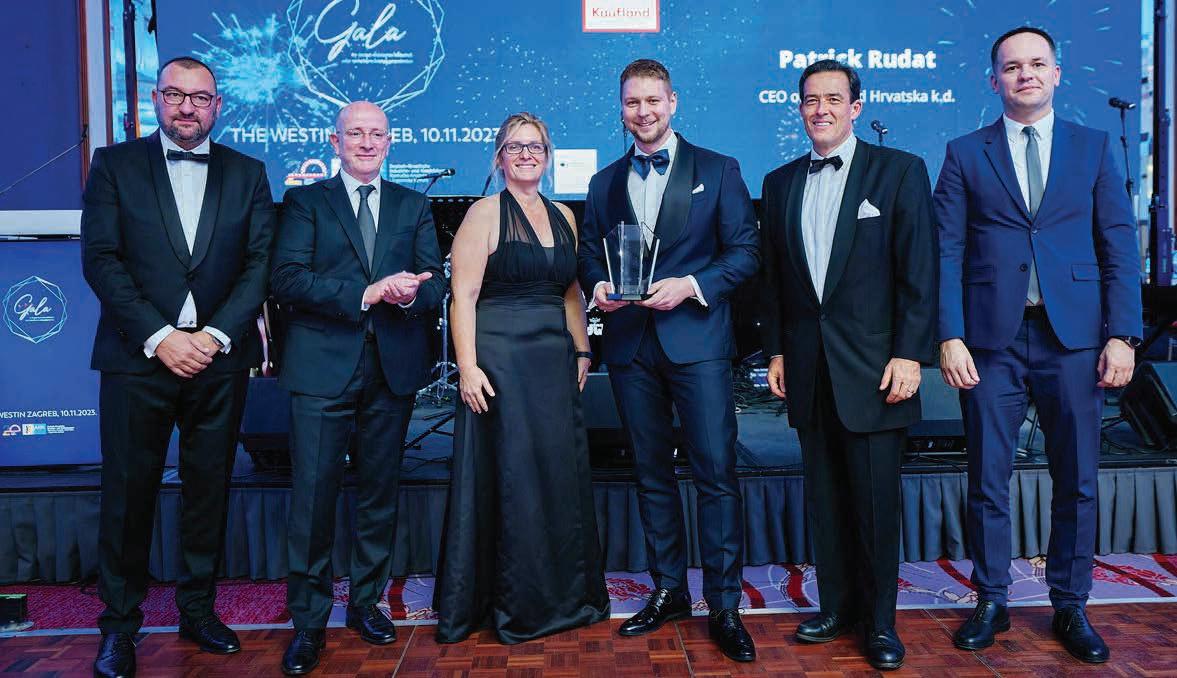
Formula 1 racing cars run on tires produced on “made in Croatia” heating presses.
and facilitate knowledge sharing within the energy sector. Through Eurem, AHK Croatia offers training programs designed to enhance the skills of professionals in energy management, enabling them to implement effective energy-saving measures. Similarly, Young Energy Europe focuses on the younger professionals, providing educational initiatives to inspire future leaders in energy innovation. Together, these projects highlight AHK Croatia’s important role in advancing the transition towards a more sustainable and energy-efficient future.
Given the German focus on green hydrogen, how do you assess the opportunities for cooperation?
Hydrogen is set to play an important role in the country’s energy, transportation and industrial sectors. Thanks to a good starting position in energy generation from renewable energies, green hydrogen is to be produced in a climate-friendly way. According to the hydrogen strategy, hydrogen could account for between 20 and 30 percent of Croatia’s gross energy consumption by 2050.
At a national political level, the longterm supply of gas and hydrogen to Germany and Austria from the Croatian LNG terminal on the island of Krk was discussed. A joint steering group is now to clarify the next steps with network operators and energy suppliers over the coming years. There are generally good opportunities for bilateral cooperation here.
What are AHK’s plans for this year, what would you like to highlight from your activities for our readers?
Every year, we organize a range of events and initiatives that interest foremost our members but also the public and institutions. A good example is our upcoming delegation trip to Munich, that will comprise the themes of hydrogen, e-mobility, and artificial intelligence. This project will provide insights but also strong networking opportunities for participants and enable them to explore advancements in these fields.
The most prominent issue is the insufficient fight against corruption, which continues to be a significant concern.
Some Croatian companies have already started to examine the integration of hydrogen into their business models and have launched their first pilot projects. For example, INA’s first commercially operated hydrogen filling station could go into operation by 2025. The City of Zagreb is also conducting a pilot project for hydrogen use in local public transport with INA involvement. As a result of the project, 20 hydrogen buses could be procured and used in the capital in a few years’ time.
HEP, which plans to increase its electricity generation capacity by 1,500 megawatts by 2030, is also looking into making greater use of hydrogen. Electricity production from renewable energy sources is set to increase from 6 billion to 9 billion kilowatt hours per year. This capacity could also be used for the production and use of hydrogen.
Furthermore, our calendar includes the German-Croatian Economic Forum under the motto “The future of Croatia” in May. We are still deciding on the program, as there are so many interesting and important topics but too little time.
When making plans we always try to listen to our community, our members mainly, and then focus on what their needs are. Recently we organized a workshop about the professional use of ChatGPT, for example, and the interest was enormous. Apart from our networking events there will be further expert seminars depending on current topics in the market. We always try to introduce our members to new and interesting speakers and professionals to support them in being up to date with everything important for their businesses.
The year end is reserved for our traditional annual Gala evening. Last year we had almost 300 guests. This might sound pretentious, but I think our AHK Gala is one of a kind in Croatia. You must come and see for yourself.
29

GERMAN DUAL EDUCATION MODEL – A REAL EXPORT BULLSEYE
Many European countries have recognized this model as an effi cient instrument in ensuring high quality, professionally trained workforce, and their better inclusion into the labour market
EDUCATION
Facing a high unemployment rate and lack of professionally trained workforce, Croatia has joined a new trend which is supported, among others, by the German-Croatian Chamber of Commerce and Industry.
WHAT IS EXACTLY DUAL EDUCATION?
It is a principle of how two partners function – there is school, on one side, and a company, on the other, which share responsibility for vocational education of young people. The emphasis here is learning through work. Under this dual education system, from the very beginning of their schooling, students are also working in companies three to four days a week, where they are taught practical knowledge. The theoretical curriculum is taught at their school one or two days a week. By doing so, students are being educated in a way that suits labour market needs. The fact
Retail and tourism jobs Will be 'dualized' first
that over 2/3 of young people in Germany have chosen dual education, and that the youth unemployment rate in this country has been the lowest in the EU for years, speaks in favour of just how successful is this cooperation between business sector and education system. It is clear that the German dual education model cannot be fully translated to other countries. However, its main elements can be implemented in other education systems with bilateral chambers of commerce playing crucial role in supporting this intention. The GermanCroatian Chamber of Commerce and Industry (AHK) is implementing a pilot project with the goal of realizing, testing and evaluating the results of dual vocational education in Croatia. The Federal Ministry of Economy and Energy (Bundesministerium für Wirtschaft und Energie – BMWi) and the Association of the German Chambers of Commerce and Industry (DIHK) are funding the
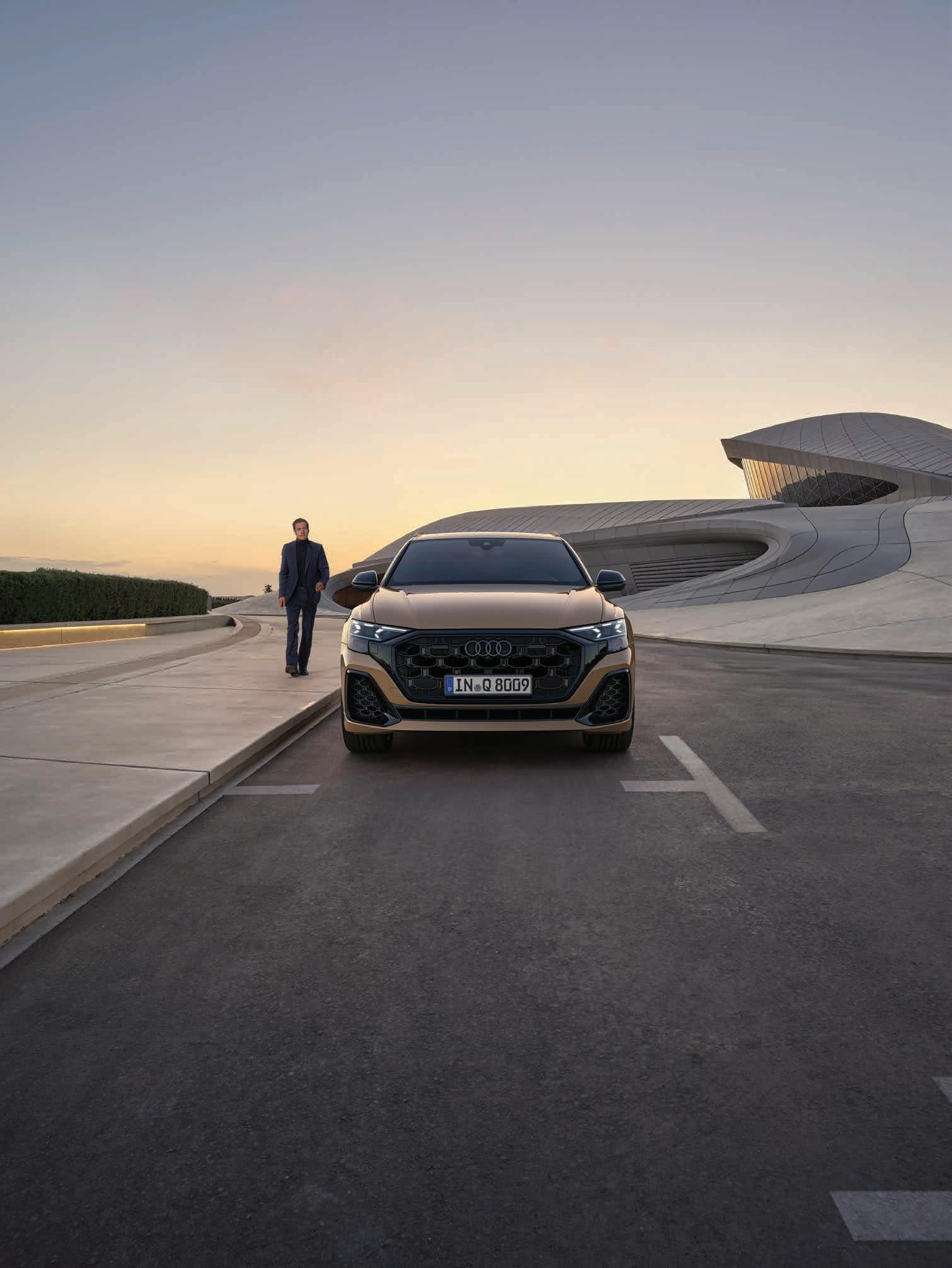
GERMANY
project. The first vocations to be included in dual education are those in retail and tourism, followed by technical jobs. The focus is on German standards, as well as on the framework curricula and test rule books which are used in Germany. Mid- and long-term, AHK plans to advise Croatian companies how to train students, coordinate cooperation with vocational schools, train mentors in companies, and perform quality tests. It is also important to show to both students and their parents that dual education is not a one-way street but should be viewed as a practicallyoriented foundation for life-long learning, and, simultaneously, as a job seeking orientation. Although this is a long process, implementing dual education according to German standards would permanently contribute to bridging the gap between expectations and needs of companies, and skills of students in vocational schools. 30 www.diplomacyandcommerce.hr
Spreman ostaviti bez daha
Novi Audi Q8

a
Progresivan dizajn i vrhunske performanse redizajniranog Audi Q8 modela uz quattro pogon na sve kotače oduševit će vas na svakom putovanju. To je napredak koji možete osjetiti.
Napredak kroz tehniku

Više na audi.hr
Prosječna potrošnja goriva: 8,1-10,7 l/100km. CO₂-emisije, kombinirano: 213-244 g/km Slika automobila je simbolična i sadrži dodatnu opremu dostupnu uz nadoplatu.

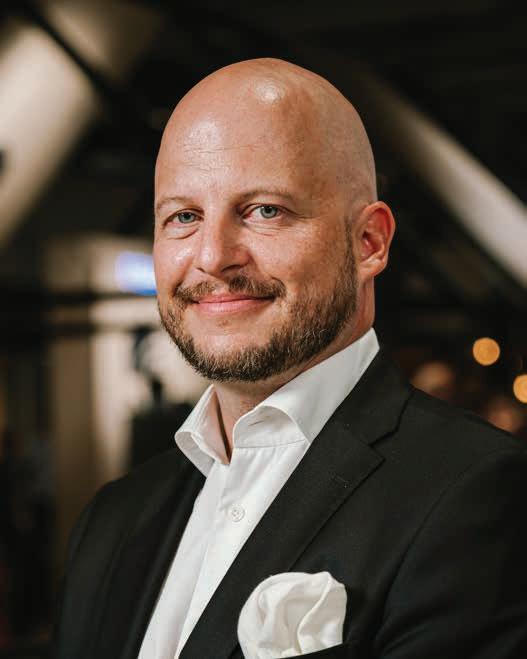
I can proudly say that through these values we continue to improve homes and lives of our customers with exclusive designs, convenient features, and smart appliances. And our anniversary is a great occasion to (re)tell the corporate narrative. In doing so, we not only want to look at the past with a fresh eye, but also discuss visions for the future, for Diplomacy&Commerce says Mr. Josef Asböck Commercial Director Miele Croatia, Slovenia, Bosnia & Herzegovina. Because pushing the boundaries of our imagination instead of accepting the status quo is what we have done over the past 125 years and will continue to do in the next century.
Since the development and delivery of your first milk centrifuge in 1899, your philosophy and passion have remained the same to this day. What do you have to say to potential and regular fans of your products? What are you preparing for the companies’ 125th birthday?
We are very excited to celebrate our jubilee together with our customers by launching more than 80 anniversary models across all product groups worldwide.
Our Jubilee collection consist of attractive campaign models, customer service offers as well as digital highlights, in two different promotional ranges.
The 125 Edition comprises models with attractive feature sets at an attractive price point and/or with free accessories. All models are also connectivityenabled with the Miele@Home solution and are tested to last for 20 years.
125 YEARS OF MIELE STILL STANDS FOR QUALITY AND SUSTAINABILITY
The whole 2024 will be a celebration year in which we will continuously expand our 125th anniversary offers but also introduce new and attractive products.
MR. JOSEF ASBÖCK Commercial Director Miele Croatia, Slovenia, Bosnia & Herzegovina
The whole 2024 will be a celebration year in which we will continuously expand our 125th anniversary offers but also introduce new and attractive products.
The anniversary models from the 125 Gala Edition also offer considerable benefits in terms of features and accessories. Across all products, an exclusive 125-week extended warranty applies to all 125 Gala Edition models. This applies in addition to the statutory 2-year guarantee. Hence, in total, guarantee cover on these anniversary models amounts to the 2-year guarantee plus an additional 125 weeks.
How do you evaluate the business climate in Croatia, and what do you think should be improved, and what would you highlight as good practice?
Croatia plays an important role in the economic and political framework of Southeast Europe.
The optimism of the business community in Croatia is increasing, there are also noticeable positive developments in numerous business segments, but systematic reforms are still needed, especially around the judiciary and complex administrative procedures.
The Croatian government has taken positive steps to improve the business climate, the COVID-19 pandemic accelerated digitalization efforts, which has helped decrease excessive bureaucratic procedures for both citizens and companies. Government reforms also seek to liberalize the services market, diversify capital markets, and improve access to alternative financing, and reform tax incentives for research and development.

GERMANY
CORPORATE
32 www.diplomacyandcommerce.hr

The recent accession of Croatia to the EURO and Schengen areas is a major milestone for trade and investment. Reduced cost, removal of travel, trade and investment frictions will contribute positively to the country’s economic performance.
Croatia is one of the markets for which you are responsible. There are also Slovenia and Bosnia and Herzegovina. What would you point out as the biggest difference between the mentioned markets?
When we talk about Croatia and Slovenia – which are members of the European Union, and Bosnia and Herzegovina, we must be aware that these three countries are different regarding to their socioeconomic level.
The purchasing power has a high say when a consumer, a family, has to think about their basic living expenses.
Miele quality is well known and interest for our appliances is high, especially in Croatia and Slovenia, which markets are growing steadily especially last years in Croatia – throughout all product categories.
In Bosnia and Herzegovina there are a few hot spots which stand above like Sarajevo, Mostar and Banja Luka so the potential is there.
Croatian market shows growth in all categories despite the inflation after the Euro introduction, the war in Ukraine and the global energy crisis, and with steady growth of our company in Croatia since then, I can with certainty say that our consumers are still driven by quality and innovations.
As a German brand, you are synonym for quality. How demanding are consumers and how much do they know and follow all the novelties that appear on the market in all the segments you cover, especially in conditions of inflation after the Euro introduction?
The market for high-end appliances caters to consumers who seek superior performance, advanced features, and exquisite aesthetics in their appliances.
This market is continuously innovated and technologically advanced. We as premium appliance manufacturer are investing heavily in research and development to create cuttingedge products to meet the demands of our consumers.
These innovations often include smart home integration, allowing appliances to be controlled through smartphones or virtual assistants. High-end consumers increasingly value machines with IoT capabilities, enabling them to remotely monitor and control their household appliances.
Our consumers value the nationwide Miele After Sales Service. When you buy a Miele appliance, you choose longevity and the best quality. If, however, help is required, Miele Service can provide rapid and reliable assistance everywhere in Croatia. This is unique in our industry an appreciated by our demanding consumers.
As mentioned, Croatian market shows growth in all categories despite the inflation after the Euro introduction, the war in Ukraine and the global energy crisis, and with steady growth of our company in Croatia since then, I can with certainty say that our consumers are still driven by quality and innovations.
More and more people are informing themselves about novelties to make their everyday life easier and more sustainable. This is where Miele is recognized as a leader in innovation and sustainability.
Miele is the winner of numerous awards for quality and business. What new things can we expect from you in the period ahead when we talk about product innovation?
The whole 2024 will be a celebration year in which we will continuously expand our 125th anniversary offers but also introduce new and attractive products.
Our segment of cordless vacuum cleaners is enlarged with the new Duoflex HX1 which is setting new standards in the world of cordless handsticks in terms of design and cleaning performance.
To further develop customer experience in our own retail channels, in March we are launching a new website which will create a personalized and engaging shopping experiences.
33
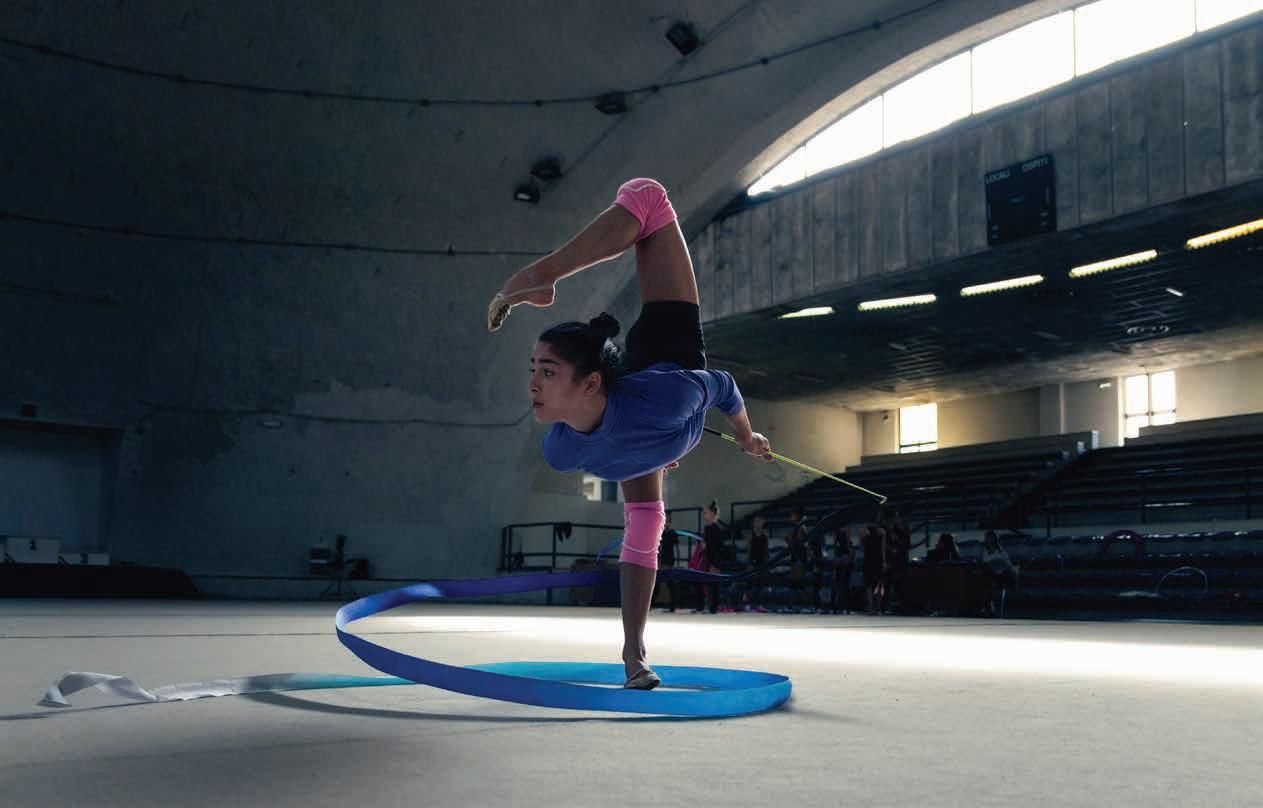
ALLIANZ –SHAPING THE FUTURE OF SPORTS
As a dedicated supporter of sports and athletes around the world, Allianz is proud to be the official insurer of the 2021-2028 Olympic and Paralympic Games.
CORPORATE
To inspire people and prepare them for everything that life has to offer, Allianz builds partnerships with like-minded organizations that embrace innovation and promote positive change in the world focusing on important topics such as climate change, corporate citizenship, diversity, and inclusion.
PROUD WORLDWIDE OLYMPIC AND PARALYMPIC INSURANCE PARTNER
Combining the knowledge and expertise of its teams, Allianz develops a comprehensive and unique approach to the sports market and sports recreation. Allianz is proud
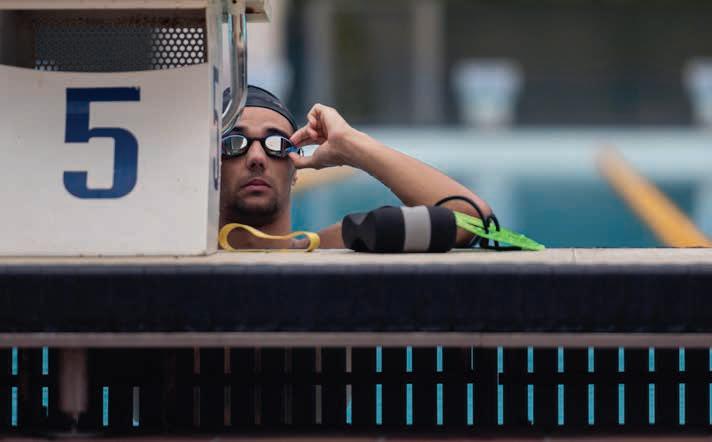
GERMANY
34 www.diplomacyandcommerce.hr
long-standing partner with sports and cultural institutions. These partnerships capture the emotional spirit of their business and inspire millions worldwide with stories of great effort and achievement.
Allianz has supported the International Paralympic Committee since 2006. In 2018 Allianz became the Worldwide Insurance Partner of the Olympic & Paralympic Movements, which was a unique opportunity to drive impact on their strategy along the dimensions of people, business, and brand. Joining the Olympic & Paralympic Movements was more than a sound business decision - it was a statement about Allianz itself.
OFFICIAL INSURER OF 2021-2028 OLYMPIC AND PARALYMPIC GAMES
By becoming the official partner of the International Olympic Committee and the official insurer of the 2021-2028 Olympic and Paralympic Games, the Allianz Group strengthened the important position in major national and international sports events. In Croatia, they established long-standing successful cooperation with the Croatian Paralympic Committee, taking great steps to-
gether in popularizing Paralympic sports and including children and people with disabilities in the sports community. They extended their commitment to inclusive sport through corporation with Croatian Olympic Committee beginning in 2021.
As part of this partnership, Allianz offers innovative and integrated insurance solutions to athletes, sports federations and companies associated with the Olympic and Paralympic Movements.
PREPARING THE NEXT GENERATION TO MOVE
Together with the Olympic and Paralympic Movements, Allianz founded the Move Now program to entice the next generation back to sport – especially important after the pandemic. They offer a series of global programs and local training camps to move body, mind and soul to encourage young people into sports. And as a global first, in collaboration with the International Paralympic Committee, they launched a dedicated workout series for people with an impairment, representing people with disabilities both in front of and behind the camera on social media.
Together with the Olympic and Paralympic Movements, Allianz founded the Move Now program to entice the next generation back to sport
Through their passion for sports, Allianz highlights the physical, psychological, and sociological benefits of sports for humanity, and makes an exceptional contribution to shaping the future of sports. Connecting Allianz’s purpose “We secure your future” with the Olympic vision of building a better world through sport and the Paralympic vision to make for an inclusive world through sport, their joint goal is to secure the future for individuals, families, and businesses around the world. The next station is Paris 2024, where Allianz will celebrate the achievements of athletes together with sports fans around the world.

35
The best locations for greenfield investments
Entrepreneurial Center of Zagreb County
n the heart of Zagreb County, Velika Gorica emerges as a beacon of economic dynamism and cultural richness. With its lush Turopolje lowlands, the serenity of Posavina, and the undulating Vukomeričke hills, Velika Gorica, the sixth-largest city in Croatia, is not just a geographic marvel but a hub of opportunities and innovation. This city, home to over 65,000 residents, stands as a testament to Croatia’s burgeoning economic landscape, blending historical gravitas with modern vibrancy. Velika Gorica’s strategic position, merely 16 kilometres south of Zagreb and near Franjo Tuđman Airport, Croatia’s busiest airport, magnifies its allure to investors and businesses alike.
IVelika Gorica’s economy is a multifaceted entity, benefiting significantly from its agricultural roots, evident in the fertile plains of the Turopolje region, and its strategic location that has fostered a conducive environment for businesses to thrive. The city’s rich cultural heritage, marked by archaeological findings dating back to prehistoric times and landmarks such as the Museum of the Turopolje region and Lukavec fortress, enriches its appeal, attracting tourists and fostering a thriving local economy.
In this context, the development of the Rakitovec and Vukovinsko Polje Business Zones stands as a strategic initiative to further propel Velika Gorica into the economic forefront of the region. These zones are not just parcels of land designated for industrial and commercial use; they are ecosystems designed to nurture innovation, facilitate business operations, and attract international investment.
The Vukovinsko Polje Business Zone, strategically located near the Franjo Tuđman Airport and major highways, extends across almost 110 hectares. It offers robust infrastructure, including roads, electricity, water, and sewage networks, making it an attractive destination for businesses. The proximity to major transportation hubs, coupled with favourable building and zoning regulations, presents a compelling proposition for logistics, manufacturing, and
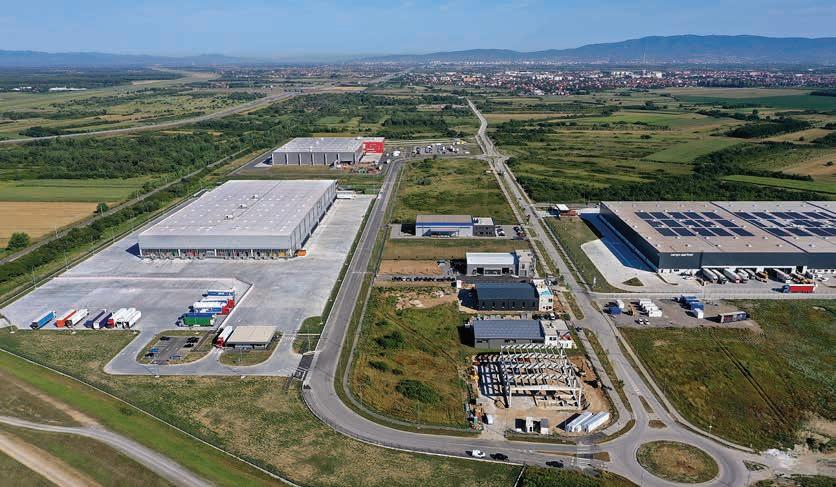
YOU CAN FIND ADDITIONAL INFORMATION ABOUT IVANIĆ GRAD AND OTHER GREENFIELD LOCATIONS IN ZAGREB COUNTY AT WWW.GREENRING.BIZ
service-oriented enterprises. With a Building Coverage Ratio (BCR) of 0.4, a Floor Area Ratio (FAR) of 1.6, and a building height limit of 12 meters, it offers ample flexibility for various types of enterprises.
Similarly, the Rakitovec Business Zone, covering 38.52 hectares and adjacent to the Zagreb-Sisak highway, offers excellent connectivity and infrastructure support. This zone, with its proximity to railway
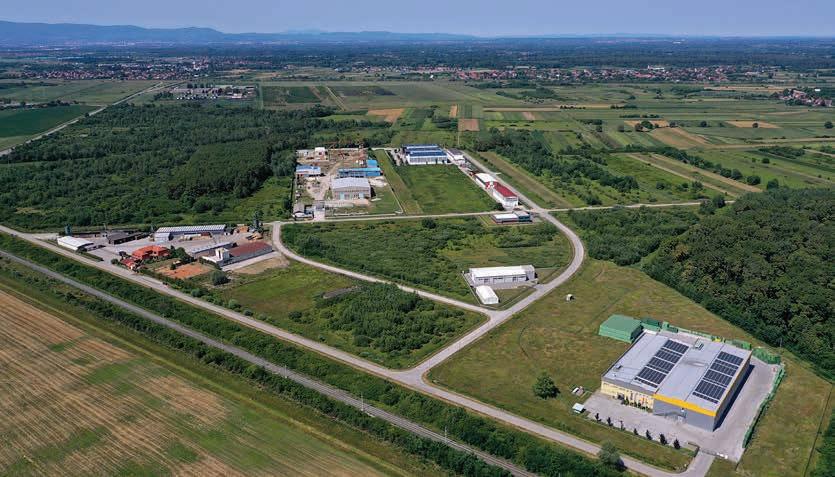
lines and major roads, is perfectly positioned to cater to industries and businesses looking to leverage Velika Gorica’s strategic location for growth and expansion.
For investors, both zones offer an array of benefits designed to ease the financial burden of setting up and operating businesses. The communal and utility fees in these zones are competitively priced, with significant exemptions and reductions available to encourage investment in manufacturing, service activities, and more. These incentives, ranging from reductions in communal contributions for specific construction projects to exemptions on utility fees for new manufacturing activities, reflect Velika Gorica’s commitment to fostering a businessfriendly environment.
Moreover, the structured payment options for communal contributions and utility fees, including the possibility of paying in instalments or availing of discounts for one-time payments, further underscore the city’s flexibility and investor-friendly stance. These financial incentives, coupled with the strategic location, robust infrastructure, and rich cultural backdrop, make Rakitovec and Vukovinsko Polje Business Zones not just attractive but strategic choices for businesses looking to expand their footprint in Europe.
As Velika Gorica continues to evolve, the development of these business zones is a clear indicator of the city’s ambitions. It is positioning itself as a city of the future, where history and heritage blend seamlessly with innovation and economic growth. For investors and businesses, Velika Gorica offers a compelling narrative: a city that values its past while boldly forging a path towards a prosperous economic future. In this dynamic landscape, the Rakitovec and Vukovinsko Polje Business Zones stand as beacons of opportunity, beckoning businesses, and investors to be part of Velika Gorica’s remarkable journey towards becoming a central economic hub in Croatia and beyond.
36 www.diplomacyandcommerce.hr CORPORATE
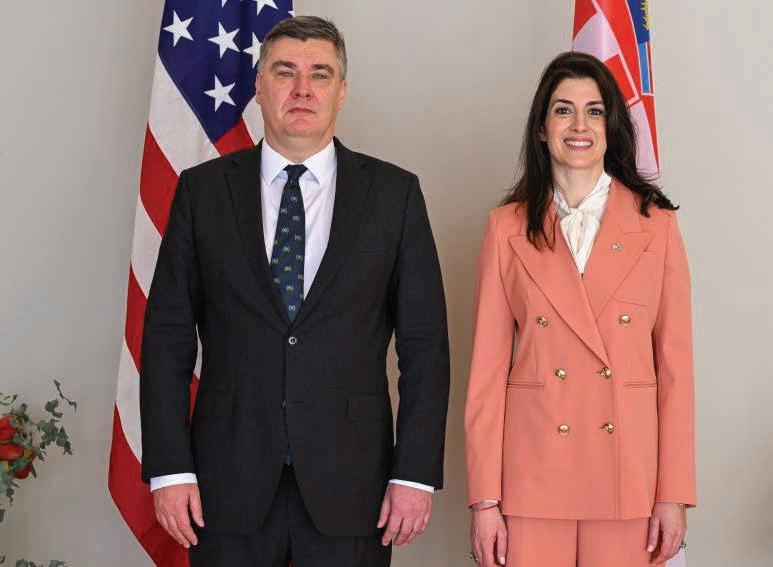
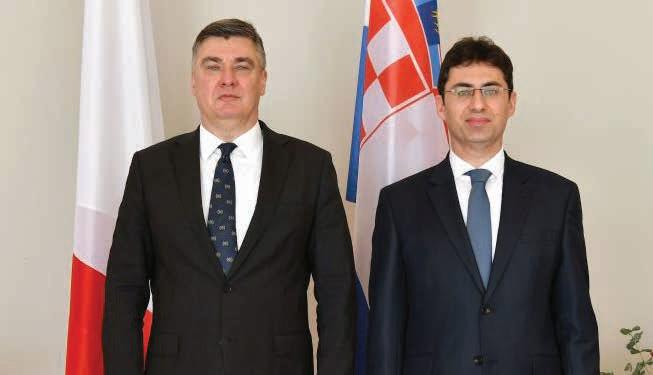
The President of the Republic of Croatia received the credentials from the Ambassador of the USA, Republic of Malta, Qatar, Cuba, El Salvador
The President of the Republic of Croatia, Zoran Milanović, received the credentials of several newly appointed ambassadors to Croatia based in Zagreb, Valletta and Vienna.
The President of the Republic of Croatia, Zoran Milanović, received the credentials of he President of the Republic of Croatia Zoran Milanović received the credentials from the Ambassador of the United States of America. H. E. Nathalie Rayes. The Ambassador of the United States of America was accompanied by her spouse Tarek Samad, sons Julian Samad and Alexander Samad, Deputy Chief of Mission Mark Fleming, Defense Attaché Colonel Scott McLearn, and the Adviser for Press and Culture Danielle Harms. President Milanović was accompanied by the Adviser to the President of the Republic for Foreign and European Policy Neven Pelicarić, Director-General of the Directorate-General for Political Affairs in the Ministry of Foreign and European Affairs Petar Mihatov, and the Secretary of the Cabinet for Foreign and European Policy in the Office of the President Ivan Mutavdžić.
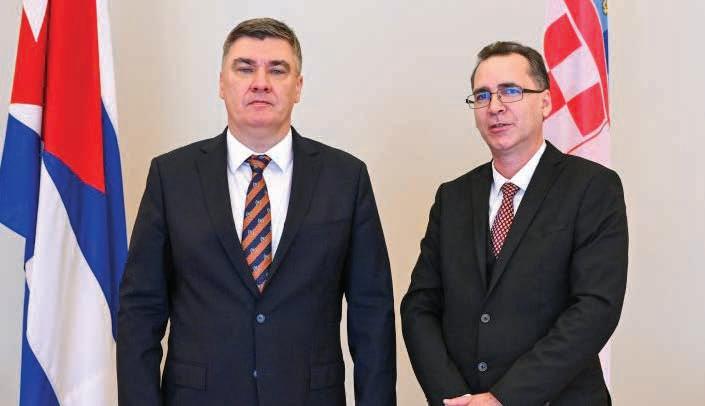
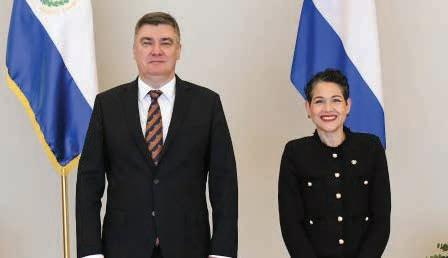
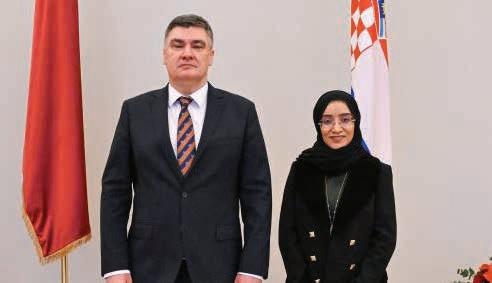 Office of the President of the Republic of Croatia / Marko Beljan
Office of the President of the Republic of Croatia / Tomislav Bušljeta
Office of the President of the Republic of Croatia / Dario Andrišek
Office of the President of the Republic of Croatia / Tomislav Bušljeta
Office of the President of the Republic of Croatia / Dario Andrišek
H. E. Clarence Leslie Pace, Ambassador of the Republic of Malta to the Republic of Croatia, with residence in Valletta, presented his credentials to the President of the Republic of Croatia Zoran Milanović.The Ambassador of the Republic of Malta was accompanied by his spouse Audrey Pace and Adviser David Muscat.
H. E. Julia Emma Villatoro Tario, Ambassador of the Republic of El Salvador to the Republic of Croatia, with residence in Vienna, presented her credentials to the President of the Republic of Croatia Zoran Milanović.
H. E. Pablo Berti Oliva, Ambassador of the Republic of Cuba to the Republic of Croatia, with residence in Vienna, presented his credentials to the President of the Republic of Croatia Zoran Milanović.
Office of the President of the Republic of Croatia / Marko Beljan
Office of the President of the Republic of Croatia / Tomislav Bušljeta
Office of the President of the Republic of Croatia / Dario Andrišek
Office of the President of the Republic of Croatia / Tomislav Bušljeta
Office of the President of the Republic of Croatia / Dario Andrišek
H. E. Clarence Leslie Pace, Ambassador of the Republic of Malta to the Republic of Croatia, with residence in Valletta, presented his credentials to the President of the Republic of Croatia Zoran Milanović.The Ambassador of the Republic of Malta was accompanied by his spouse Audrey Pace and Adviser David Muscat.
H. E. Julia Emma Villatoro Tario, Ambassador of the Republic of El Salvador to the Republic of Croatia, with residence in Vienna, presented her credentials to the President of the Republic of Croatia Zoran Milanović.
H. E. Pablo Berti Oliva, Ambassador of the Republic of Cuba to the Republic of Croatia, with residence in Vienna, presented his credentials to the President of the Republic of Croatia Zoran Milanović.
37 DEPARTURES AND ARRIVALS
The Ambassador of the State of Qatar was accompanied by Second Secretary Nasser Salman Al-Malek and Second Secretary Mohammed Abdulla Al-Sada.
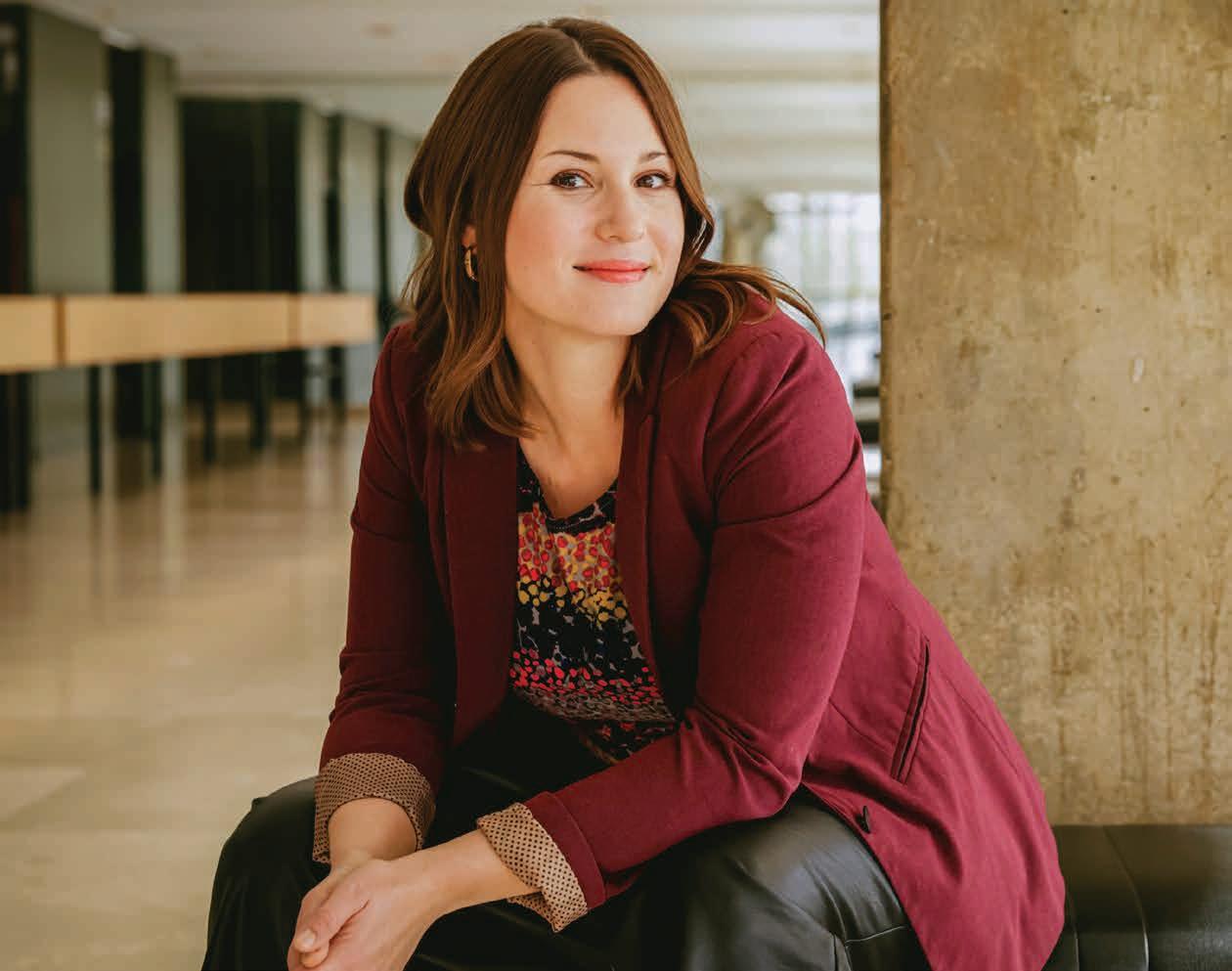

Lisinski – synonymous with quality and tradition

I ended the year 2023 almost symbolically - with a big celebration of 50th anniversary of the Hall
NINA ČALOPEK
General Manager of Vatroslav Lisinski Concert Hall
I think a lot and often about the much broader context in which music takes place, i.e. I always try to remind myself that concert events are part of the socio-economic-political environment and culture of living, director of Vatroslav Lisinski Concert Hall Nina Čalopek tells Diplomacy&Commerce, Ms. Čalopek also talks about plans but also about her personal view of the work she does and the way she looks at culture and the synergy of management and art.
Vatroslav Lisinski Concert Hall is named after the composer of the first Croatian opera, “Love
IT TAKES A LOT OF TALENT AND A GOOD DOSE OF HEALTHY INTUITION TO CREATE CONCEPTS, IDEAS AND PROGRAMS.
and Evil”. The opening ceremony took place over the course of three days. Half a century of existence and operation of the most important music, and not only music, hall in Zagreb and Croatia carries with it a great responsibility. We believe that you are also planning special programs to mark this jubilee. Can you reveal to our readers at least a part of your plans?
Half a century of concerts and programs of all types, half a century of making music, half a century
of memories and intimate experiences, are reflected and recognized in the outlines of the cultural map of the city of Zagreb until this day. It was very important for me to use the celebration program itself, which stretched over as much as three days, to point to that halfcentury of wealth, to the layering and networking of musical genres, artists, institutions, ensembles, but also to the role of the audience itself and the employees of the Hall in this multi-layered and very important dance that actu-
ally makes the Lisinski Hall. About 5,000 people passed through the Hall in those three days, around 400 artists performed, including the best Zagreb ensembles such as Cantus Ensemble, Zagreb Soloists, Zagreb Saxophone Quartet, Croatian Baroque Ensemble and many others. But, we also sang Oliver, Matija Dedić played Arsen, we saw performances of the best students of the Music Academy in Zagreb, young stars of Croatia Records record company performed, we walked around the hidden nooks and crannies of our Hall; we started every morning with children’s program and ended with a song. The climax of the celebration was certainly the performance of L. van Beethoven’s Symphony No. 9, performed by members of the Zagreb Philharmonic, the Symphony Or-
38 www.diplomacyandcommerce.hr INTERVIEW
chestra and Choir of HRT, the Choir of the Croatian National Theater in Zagreb and the Ivan Goran Kovačić Choir under the direction of Chief Conductor of the Zagreb Philharmonic, Maestro Dawid Runtz, with young but brilliant soloists Daria Auguštan , Emilija Rukavina, Roko Radovan and Matija Meić.
There is an impressive list of ensembles and soloists through whose performances Lisinski enriched the cultural offer of Zagreb and Croatia. Just so we wouldn’t list all those who have already visited, can you tell us some of the names we expect this year and when? What would you personally like to draw attention to?
It is a great responsibility, but also a challenge and a pleasure to inherit such a cycle as “Saturday at Lisinski”, one of the most prestigious, and also the oldest cycle of classical music that brings the brightest of the brightest to the stage of our Hall. The first part of the season brought to Zagreb the Vienna Symphony Orchestra under the direction of Jaap van Zweden, the current Chief Conductor of the NY Philharmonic, the mandolinist Avi Avital with Il Giardino Armonico, and the NDR Elbphilharmonie Orchestra and their current Chief Conductor Alan Gilbert performed with the violinist superstar Joshua Bell, to name just a few. Concerts of great pianists are ahead of us.
Alice Sara Ott is coming first with the Symphony Orchestra of the City of Birmingham; the almost sold-out Ivo Pogorelić Recital is also planned, as well as the guest appearance by pianist and organ virtuoso Wayne Marshall, who is coming to Zagreb with a cheerful repertoire and in the role of conductor with the Slovenian Philharmonic.
I am proud to be able to announce some novelties as well. The first one is the Zagrebačko glazbeno proljeće Festival, which we are organizing in cooperation with the Zagreb Philharmonic. Preservation of Croatian musical heritage and its better understanding in the domestic and international context is the primary goal of this festival, which will be dedicated to certain musical phenomena, composers, performers and other elements from the history and modernity of Croatian music. This year’s edition of the festival is called “The Organ - Queen of Instruments” and it will last from April 25 to 28. Another novelty is a new project for music aficionados with vivid taste in

I AM PROUD TO BE ABLE TO ANNOUNCE SOME NOVELTIES AS WELL. THE FIRST ONE IS THE ZAGREBAČKO GLAZBENO PROLJEĆE FESTIVAL, WHICH WE ARE ORGANIZING IN COOPERATION WITH THE ZAGREB PHILHARMONIC.
music. It is an exciting and diverse program on Lisinski Wednesdays, which will offer different musical genres to its visitors, such as jazz, blues, world music, alternative rock, crossover, historically informed performance of early music, even electronics, improvised music, etc. And this autumn, we will spice up the new concert season with more news, as well as with guest appearances by brilliant musicians, but let their names remain a secret for a while.
How much do you listen to the audience and what they want when preparing the program, choosing guests, topics or content?
I think about not only what our current or loyal audience would like to hear at Lisinski, but also how, why and for what purpose to win over a new one, but also how to eventually influence some trends, how to respond to the challenges that culture and art face in this post-digital, post-pandemic, post-earthquake (for Zagreb), and post-post-modernist society (in global and cultural terms). I will not prepare any program without listening to what the audience actually needs, but also what are the needs of the wider artistic community, therefore the artists themselves, and on the other hand, without thinking about the cultural imprint that my program selection will make.
What are the problems that you most often encounter in your work and when implementing the program, and how do you solve them? Is the City of Zagreb an interlocutor on that topic? What is the contribution of the Ministry of Culture and the State?
The City of Zagreb, as the founder of the Lisinski Hall, is currently a great partner and interlocutor of the Hall. In fact, the City of Zagreb clearly recognizes the position of the Hall as the central place not only of the musical culture of the city of Zagreb, but in general in all directions of cultural policy and the creation of a better society of all generations of its fellow citizens. On the other hand, I would like to achieve better synergy with the Ministry of Culture, or at least common points in the values we share. In fact, we have yet to start this conversation, and I believe that all the quality programs that we are already conducting in the Hall, i.e., all the programs that we are yet to realize and develop, will be a sufficient mark for strengthening cooperation with the Ministry of Culture.
You have obtained a lot of professional experience during the course of an enviable career. How much does this help you as a manager, producer at the head of an important institution, in the organization of work, and how much as an artist in creating programs and ideas?
It’s interesting how you called me an artist in the creation of programs and ideas, because in a way, that’s exactly how I see it. It takes a lot of talent and a good dose of healthy intuition to create concepts, ideas and programs. I do a lot of things by instinct, although in constant synergy, as a reaction, a reflex to a social need - of the professional community, my fellow composers, performers or partner institutions and organizations, as well as the audience itself. Over the course of my almost twenty years of professional experience, I have worked in almost all positions - from the field to the desk. I love working on stage, I love talking to musicians, I was in communication with them both as a scientist and as a music critic and as an author of music documentaries. I have always had great respect for all stakeholders of a large and complex chain of production and organization. I would dare to say that I know at least basically all aspects of this job, and that certainly does not work against me in this extremely responsible position, but rather makes me learn even more every day, cooperate even better and try to create the best possible working conditions for others, so that they would be even more motivated and satisfied in their work place.
As a musicologist, how do you see the current cultural scene in all segments and the general offer in Zagreb and Croatia? What is missing and what would you like to praise?
This is a complex question, that would require much more space –especially through an answer from the position of a musicologist, but if we are talking only about classical music, then the biggest problem of all is the audience attrition. Solutions are rare or not always positive because this problem is not accompanied by sufficient knowledge, flexibility or dexterity of the organizers to develop new formats, to dare, to go beyond conventions or to use new tools to open themselves towards or approach a wide audience. Here at Lisinski, we are still very shy about this. The offer is rich, the scene is booming, it dissolves in all directions. There are perhaps even too many concerts in some periods of the year. Currently, there may be too few concert spaces, which currently work as a doubleedged sword for the Lisinski Hall because we are always full, but also overloaded. Certainly by emphasizing some new narrative in the world of classical music, it can only reap the benefits.
39 INTERVIEW
Chainsaw Policy
Will Argentina survive the risky „operation“ carried out by a president with the experience of a beginner and the ambition of a great visionary?
IIn the war, faced with no choice, the legs and arms of the wounded would be cut off. Better to be alive without an arm than buried whole. Drastic measures are sometimes the only thing left. Javier Milei, the new Argentine president, thinks that his country is such a wounded man. A once proud soldier, now on his deathbed, with a chainsaw towering over him. Milei, as he promised, will “cut” the Argentinian body part by part and even worse, he is fulfilling his promises. He plans to deregulate the economy, switch to the U.S. dollar, reduce the state apparatus, stop public spending on advertising, reduce financial support to the provinces and subsi-
dies for energy and transport and stop public construction. In the first month of his mandate, since the announced economic shock therapy, he has already halved the value of the peso, sent nine ministries to the ashes of history, dismissed 5,000 civil servants and initiated the privatization of state-owned companies. He announces the abolition of the Central Bank, will make it impossible for politicians to print money and will “plant a bomb” under the main

cause of inflation. Upon taking office in December, he said he would take a path unlike any of his predecessors to avoid hyperinflation.
“The bottom line is that there is no alternative to savings and there is no alternative to shock therapy. It is clear that in the short term, the situation will worsen, but then we will see the fruits of our efforts. Argentina will regain its position in the world that it should never have lost. We will work side by side with all the nations of the free world to
DRASTIC MEASURES ARE SOMETIMES THE ONLY THING LEFT
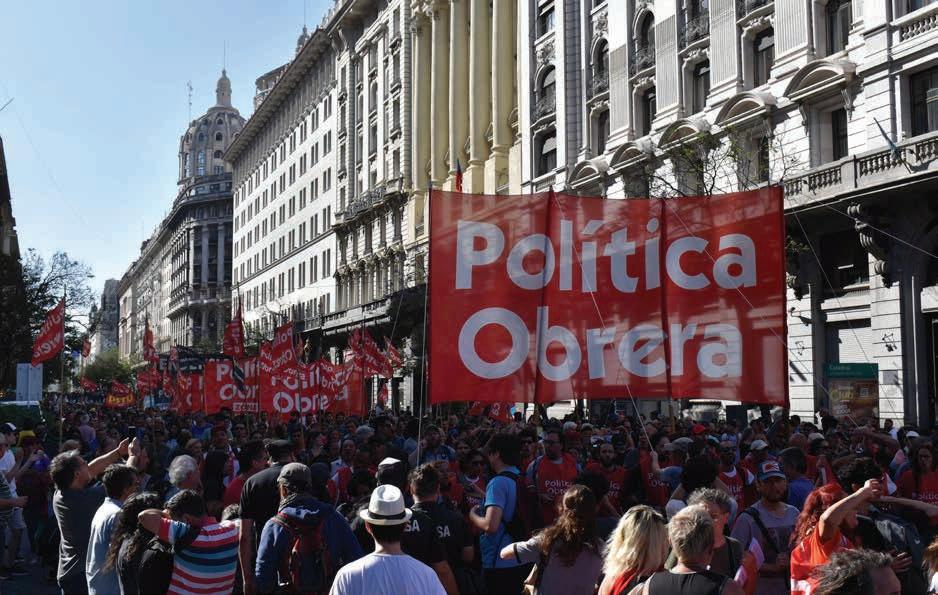
help build a better planet,” Milei promised.
It is clear that Argentina is fighting a kind of war, the most difficult one, with itself. The country is fighting for bare survival. There is no doubt that it is an all-or-nothing game. The only question is whether, once one of the richest countries in the world, will survive this intervention, the crusade against “creeping socialism” or it will bleed to death. Virtually all non-Peronist presidents since Argentina’s return to democracy in 1983 have been removed from office due to protests against economic reforms. While the president is working with extreme measures to reduce the fiscal deficit, all eyes are on the people. Did anyone think that this extreme move would pass without protest? Traditionally strong trade unions will respond to austerity plans with strikes. Whether investors will trust him and maintain the markets will depend precisely on the degree of social conflict, because society will face a huge temptation. The struggle of one of the ten richest nations in the world, which half a century ago had three percent of the poor, with now 40 percent of citizens living in poverty, will be fought on the crust of bread. Aware of this, the president has increased the amount of child benefits and food stamp subsidies used by the country’s poorest to help them not starve.
Long affected by galloping inflation and with the new government in place, Argentinians are faced with a new sudden increase in the prices of food, fuel and medicines. The consumer price index rose by 25.5 percent last month, making the
Javier Milei / Photo: Facundo Florit / Shutterstock
40 www.diplomacyandcommerce.hr ANALYSIS by Ljiljana
Buenos Aires, Argentina / 12 December 2023 / First protest against President Milei’s reform in Buenos Aires / Photo: Mattia Fossati / Shutterstock
Vujić
inflation rate, according to official statistics, more than 200 percent.
However, the International Monetary Fund, to which Argentina owes 44 billion dollars, called these measures “courageous” and promised to help create an environment for the recovery of the private sector. The president is also congratulated by the architects of the world’s right, led by Donald Trump, from whom he took the mantra “Make America Great Again” turning it into “Make Argentina Great Again”. For them, the victory in Argentina is just the beginning because, as they say, Trump will win the presidential elections this year and Jair Bolsonaro in two years.
The others agree that Milei is a “suicidal lunatic.” They mourn the horn of South America because it has not remained immune to the right-wing spring. And last year they were convinced that Latin America is an impenetrable shield to the ultra-right arrow. When their footballers won the world championship and brought the trophy, Argentinians were also convinced that they rose above poverty. Intoxicated by a sporting victory, they forgot how hungry they were. And then Messi and the other footballers, none of whom live in Argentina, returned to their mansions. The bubble burst and the people returned to reality, even more desperate. Elections followed soon after. Milei, who bases his recovery strategy on a chainsaw (which he literally wielded during the election campaign), became the president of the democratic elections exactly 40 years after the overthrow of the dictatorship.
It’s not just Messi and Che Guevara who are Argentina’s trademarks. This country is today associated with state bankruptcies, as many as three times in the last two decades, and Javier Milei, the sworn enemy of the political caste, self-proclaimed anarcho-capitalist, Trumpian and Bolsonarian, who has entered history as the first libertarian at the head of a country. Analysts debate whether he is a madman or a genius. Some consider him the harbinger of a new strong economy. Others claim that Argentina will be swallowed up by the abyss. They say that it exists in the people’s despair and that the citizens are in such a state of delirium that they would agree to be led by a blind doctor, let alone a populist, if he told them he knew the way to salvation. However, it should be noted that Milei did appear as a populist in the campaign, but his economic plan is the least

NO PRESIDENT HAS HAD SUCH LITTLE SUPPORT IN PARLIAMENT IN THE LAST 40 YEARS
populist. Unlike the variations of Peronism that preceded it, Kirchnerism and its rival federalist Peronism, his economic strategy is not based on the failed policies of subsidies in the production sector that have produced major problems for Argentina’s fiscal stability. He is focusing on the deficit, while being aware that there are no painless alternatives.
Inflation is now accelerating, which, before it starts declining, will further weaken the majority of the population and increase unemployment, while endangering small and medium-sized enterprises. Clearly, this will lead to an unstable political situation characterized by social conflicts and state repression against protests which in turn, repels foreign investors. Inflation will not stop rising until extensive fiscal reforms are implemented, which will entail even greater cuts in public spending. Meanwhile, the prices of various products and services in Argentina will go up. This has been happening since December. The experiences with economic crises and reforms of fiscally inefficient economic systems, from Eastern European to Latin American, lead to the conclusion that the introduction
of fiscal order is the first thing that must be done in order to avoid economic collapse. That is the basis.
Otherwise, reforms cannot bear fruit. Practice tells us that even a short-term improvement in the standard of living due to an increase in public spending soon plunges the state into bankruptcy. The budget reform is ahead of the market reform and the budget deficit is the main obstacle that the new government must overcome. Shock therapy in practice is always painful for the citizens, especially because the profit is a long way off. The one who implements unpopular reforms immediately suffers damage and needs to survive politically until the fruits are harvested. The announcement of austerity upon assuming office is political suicide. Interestingly, he won a convincing victory in the elections with such a campaign. His bitter pill was swallowed with gusto. On election night, his supporters cheered by raising chainsaws in the air, telling him that he should cut down the state apparatus. They are ready for painful cuts, aware that they have nothing to lose. Economic collapse is certainly guaranteed for them.
However, Milei’s strategy is not
without obstacles. Apart from the fact that the people’s endurance is questionable, the question remains to what extent the parliament will oppose, which is why we should not rule out the option that after the elections are won, the government lowers its tone and becomes moderate. No president has had such little support in parliament in the last 40 years. In the upper house of the Argentine parliament, Milei has 7 out of 72 mandates and in the lower house of the parliament 38 out of a total of 257 seats. No provincial governor is his supporter. Even though Argentina is a presidential republic, it will be extremely difficult for him to push legislation for extensive economic reforms through parliament. On the other hand, the opposing camp might realize that without reforms Argentina is headed for another bankruptcy and that, if Milei loses, they will bear the political consequences for such an outcome. Therefore, a compromise between the libertarian and his rivals is an option.
There is a fine line between fame and fortune. Whoever tames one of the highest inflation rates in the world will experience enormous fame and secure two mandates. Javier Milei came on the scene as the first doctrinal libertarian as the head of the state. Whether he will be perceived as a genius or a madman depends on his success.
41 ANALYSIS
Buenos Aires, Argentina / 12 December 2023 / Libertarian supporters at the inauguration of the new Argentine president Javier Milei / Photo: Facundo Florit
ADRIA SUMMIT: LUXURY, INNOVATION, SUCCESS: RETURNS FOR THIRD YEAR
Regional renowned leaders in e-commerce and entrepreneurship are gearing up for one of the most exciting events in the region - the Adria Summit. This exclusive conference, now in its third consecutive year, marks its presence at prestigious locations - the Kempinski Adriatic Hotel in Umag and the Kempinski Palace in Portorož. Two days of inspiring discussions and interactive panels promise a deep analysis of the impact of the crisis in the IT industry in the USA on the regional market, while also celebrating the triumphs of companies that have managed to rise to challenges and expand their businesses worldwide. After the conference concludes, participants will indulge in an exclusive VIP networking day, enriched with unforgettable experiences. From there, cycling, golf tournaments, and tennis matches serve as platforms for idea exchange and business connections, while tasting the finest Istrian specialties revives the senses. The gala dinner at the beautiful Kempinski Palace in Portorož caps off the day, with organizers preparing a big surprise for all conference participants. Adria Summit has become synonymous with idea exchange and building business relationships, attracting over 80 speakers and more than 400 visitors from 17 countries last year. Organizers Zoran Torbica and Dejan Tešić emphasize that this conference represents
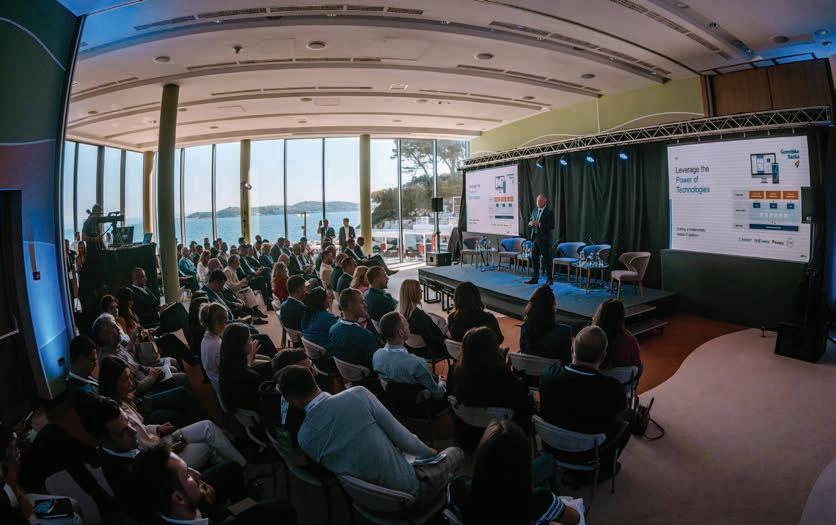
more than just an ordinary event - it is an opportunity to experience the pinnacle of luxury, innovation, and business success. „Adria Summit is not just a conference; it’s a rendezvous with the future of technology, business, and innovation,” said Zoran Torbica. The program will feature expert panels, keynote speeches, and interactive workshops, providing visitors with the opportunity to be informed, inspired, and engaged in key conversations that will shape the future of the Adria region. Dejan Tešić highlights the key
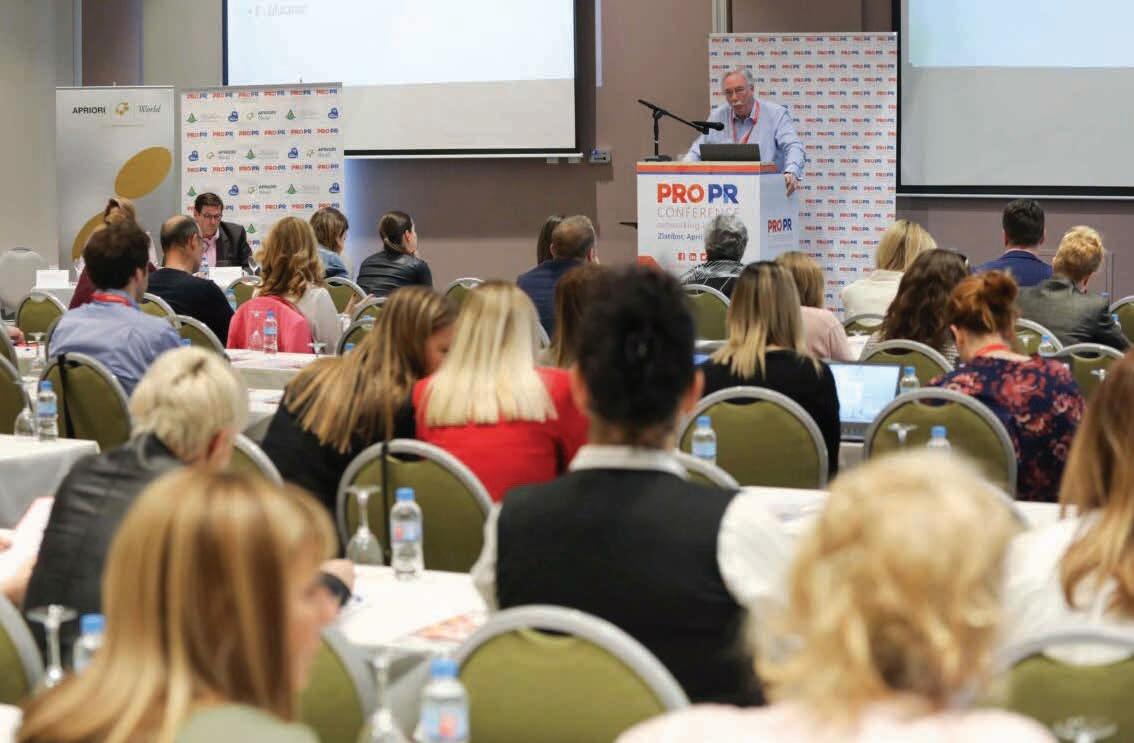
PRO PR : THE PRESIDENTS OF TWO WORLD PR ASSOCIATIONS ARE COMING TO BELGRADE
Next month, the 21st international PRO PR conference, a specialized event for communication leaders, will be held in Belgrade. The importance of this conference and its worldwide reputation is indicated by the fact that it is the only conference supported by two world public relations associations. Although they are in the same profession and have the same target groups, they are business
competitors, and the presidents of two world associations come to the conference. From London, James Hewes, president and director of the Public Relations and Communications Association (PRCA), which gathers more than 40,000 members and has offices in Dubai, Hong Kong, and Singapore in addition to London, and Nataša Pavlović Bujas, the recently elected president of the International Public
trends in digital commerce that will be the focus of discussions at the 2024 Adria Summit, including the role of artificial intelligence, hybrid commerce, AR/VR technology, and social commerce. „Digital commerce has exceeded 20% of global retail sales, compared to just 10% five years ago,“ notes Tešić, adding that this will be one of the key themes of this year‘s Adria Summit. Be part of this exciting adventure. More information and registration are available at www.adriasummit. com. See you at the Adria Summit 2024!
Relations Association (IPRA). Both of them will speak at the conference. More than 200 delegates from 17 countries are expected to attend the conference. The theme of this year’s conference is “New directions, new challenges”. As the founder and president of the organizing committee, Danijel Koletić, pointed out: “We are in Serbia for the 4th time in a row. The first time was in 2004 in Belgrade, then in Subotica in 2011, and in Zlatibor in 2018. Public relations are being transformed thanks to new technologies, but their role in creating and maintaining a good image has a great influence on the creation of profits, which was recognized a long time ago by global corporations that place the function of public relations at the very top of management because the image is not bought, the image is created. The PRO PR conference is not a spectacle of new technologies and LED screens, we have focused for years on content and quality lectures. This year, a total of 30 lecturers and panelists will provide new guidelines in this industry.” As part of the PRO PR conference, the PRO PR Globe Awards will also be awarded. Winners come from 14 countries, including Iran, South Africa, the United Kingdom, the United States of America, Spain, and others. This is a prestigious recognition for which no financial compensation is paid, but former winners, as well as four world associations (Public Relations and Communications Association – PRCA, International Public Relations Association – IPRA, International Communications Consultancy Organization – ICCO, Chartered Institute of Public Relations – CIPR) nominate future winners.
42 www.diplomacyandcommerce.hr
EVENTS WE RECOMMEND
DIPLOMACY & COMMERCE PRESENTS
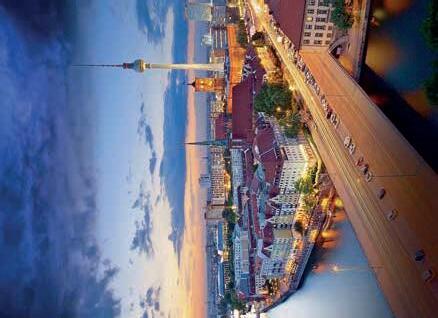

Germany

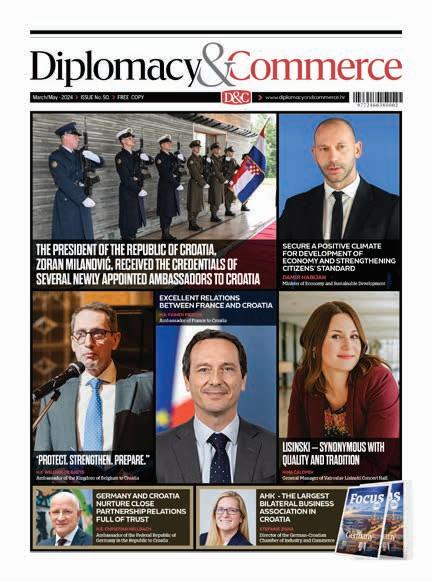
ONLY80€PERYEAR!



directorofthe German-Croatian ChamberofIndustryandCommerce AHK-THELARGEST BILATERAL BUSINESSASSOCIATIONINCROATIA OurnetworkinCroatiacurrentlycounts morethan340companieswithover 113,000employees

AmbassadoroftheFederalRepublicof GermanyintheRepublictoCroatiaGERMANYANDCROATIANURTURE CLOSEPARTNERSHIP RELATIONS FULLOFTRUSTGermanyappreciatesCroatiaasapartner withaEuropeanoutlookthatcontributes tomakingour"homeEurope"abetter placeandsharesour understandingofthe rulesofthegame.




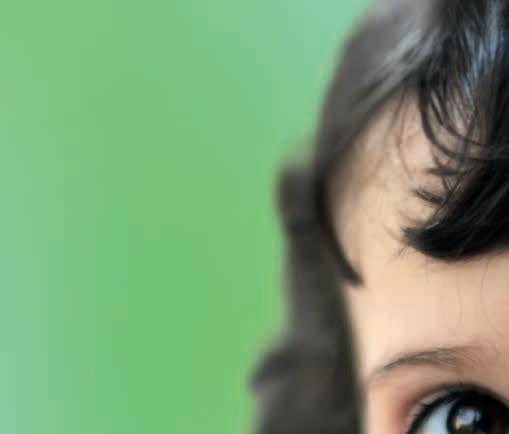




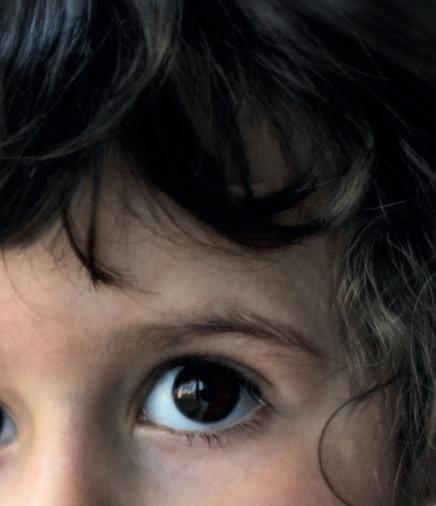
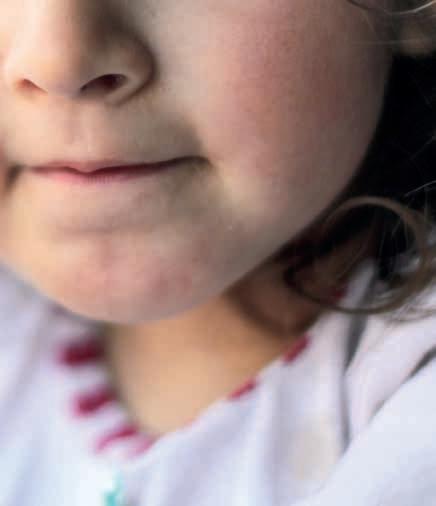




























































 H.E WILLIAM DE BAETS
Ambassador of the Kingdom of Belgium to Croatia
H.E WILLIAM DE BAETS
Ambassador of the Kingdom of Belgium to Croatia




 H.E. FABIEN FIESCHI Ambassador of France to Croatia
H.E. FABIEN FIESCHI Ambassador of France to Croatia







 REGINA M. CASTILLO
Leading
REGINA M. CASTILLO
Leading







 TOMISLAV RADOŠ, Assistant Professor, Vice President of HGK for Industry and Sustainable Development
TOMISLAV RADOŠ, Assistant Professor, Vice President of HGK for Industry and Sustainable Development



























































 Office of the President of the Republic of Croatia / Marko Beljan
Office of the President of the Republic of Croatia / Tomislav Bušljeta
Office of the President of the Republic of Croatia / Dario Andrišek
Office of the President of the Republic of Croatia / Tomislav Bušljeta
Office of the President of the Republic of Croatia / Dario Andrišek
H. E. Clarence Leslie Pace, Ambassador of the Republic of Malta to the Republic of Croatia, with residence in Valletta, presented his credentials to the President of the Republic of Croatia Zoran Milanović.The Ambassador of the Republic of Malta was accompanied by his spouse Audrey Pace and Adviser David Muscat.
H. E. Julia Emma Villatoro Tario, Ambassador of the Republic of El Salvador to the Republic of Croatia, with residence in Vienna, presented her credentials to the President of the Republic of Croatia Zoran Milanović.
H. E. Pablo Berti Oliva, Ambassador of the Republic of Cuba to the Republic of Croatia, with residence in Vienna, presented his credentials to the President of the Republic of Croatia Zoran Milanović.
Office of the President of the Republic of Croatia / Marko Beljan
Office of the President of the Republic of Croatia / Tomislav Bušljeta
Office of the President of the Republic of Croatia / Dario Andrišek
Office of the President of the Republic of Croatia / Tomislav Bušljeta
Office of the President of the Republic of Croatia / Dario Andrišek
H. E. Clarence Leslie Pace, Ambassador of the Republic of Malta to the Republic of Croatia, with residence in Valletta, presented his credentials to the President of the Republic of Croatia Zoran Milanović.The Ambassador of the Republic of Malta was accompanied by his spouse Audrey Pace and Adviser David Muscat.
H. E. Julia Emma Villatoro Tario, Ambassador of the Republic of El Salvador to the Republic of Croatia, with residence in Vienna, presented her credentials to the President of the Republic of Croatia Zoran Milanović.
H. E. Pablo Berti Oliva, Ambassador of the Republic of Cuba to the Republic of Croatia, with residence in Vienna, presented his credentials to the President of the Republic of Croatia Zoran Milanović.



























